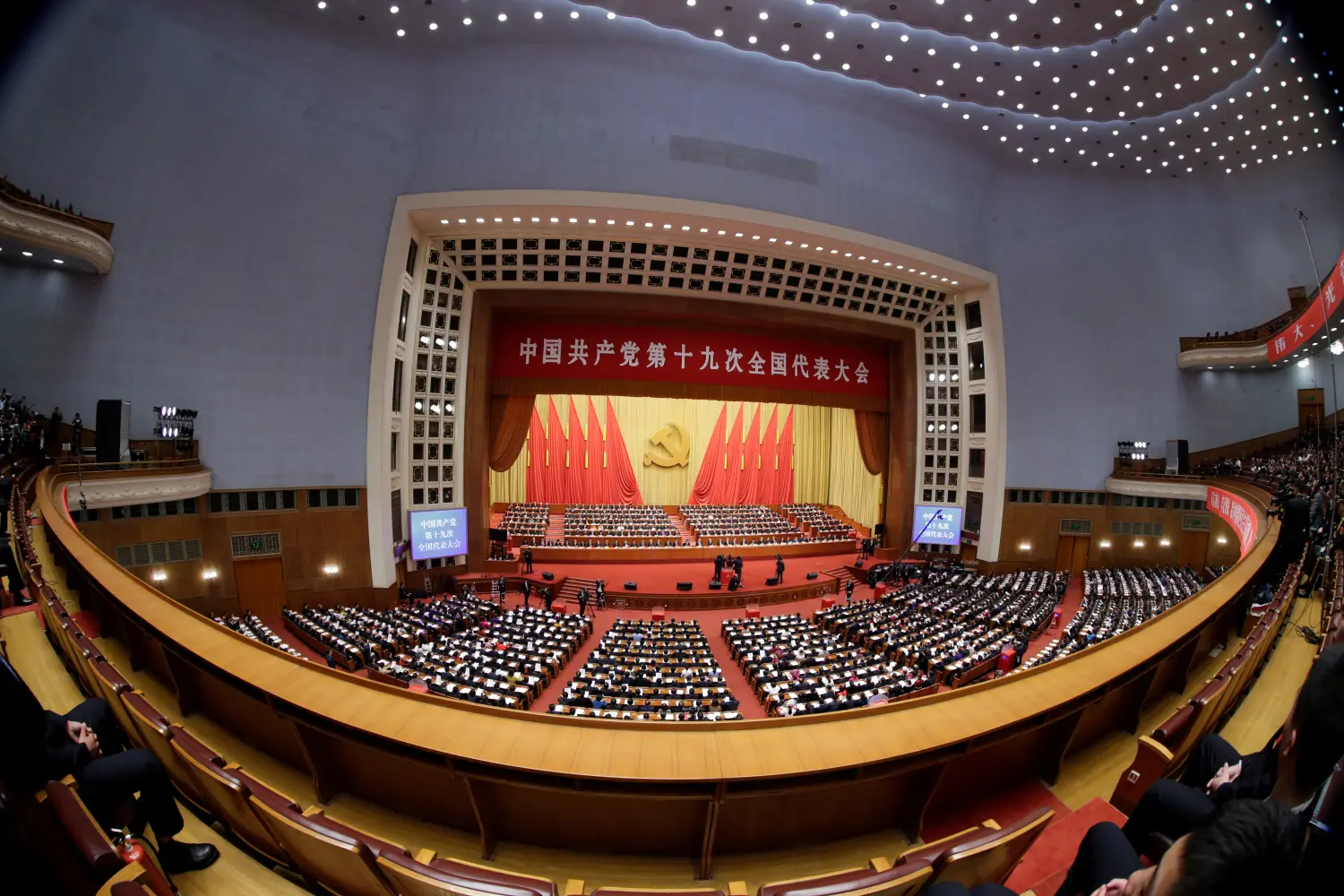The members of China’s Politburo Standing Committee and Politburo were revealed at the conclusion of the First Plenum of the 20th Central Committee on October 23, 2022.
Cheng Li would like to thank Ryan McElveen, Eric Abalahin, Zach Balin, Sophie Bryant, Jie Gao, Harry He, and Zhengting Yue for their research, editorial, and publication assistance.
Top Contenders for the 20th Politburo Standing Committee
Brookings scholar Cheng Li’s prediction of candidates for the 20th Politburo Standing Committee a week prior to the Chinese official announcement. Seven of them were eventually chosen as notated with green check mark.
Top Contenders for the 20th Politburo
Cheng Li’s prediction of candidates for the 20th Politburo a week prior to the Chinese official announcement. Twenty-four members were eventually chosen as notated with green check mark. Note that Cheng Li had predicted that Chen Min’er, Huang Kunming, and Ma Xingrui might ascend to the Politburo Standing Committee, but they now instead serve in the 20th Politburo. Five individuals below were not originally predicted to enter the 20th Politburo: Chen Wenqing, He Weidong, Li Hongzhong, Shi Taifeng, and Zhang Youxia.
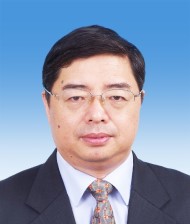
✅ Li Shulei
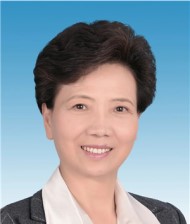
Chen Yiqin
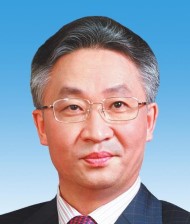
✅ Zhang Guoqing
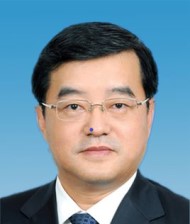
Zhang Qingwei
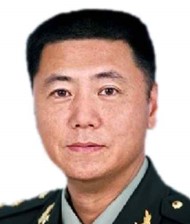
Miao Hua
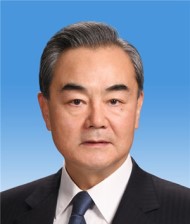
✅ Wang Yi
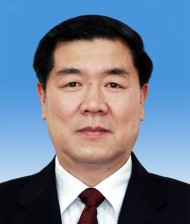
✅ He Lifeng
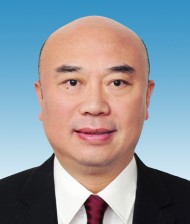
✅ Liu Guozhong
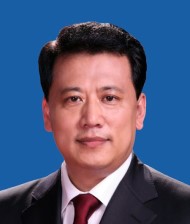
✅ Yuan Jiajun
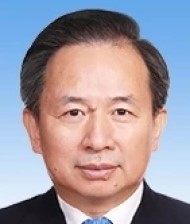
✅ Li Ganjie
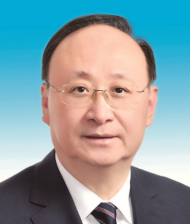
✅ Yin Li
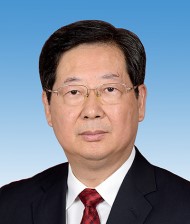
Lou Yangsheng
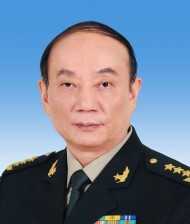
Zhang Shengmin
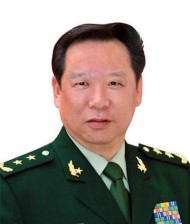
Li Zuocheng
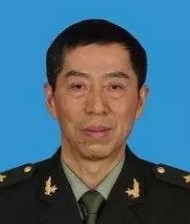
Li Shangfu
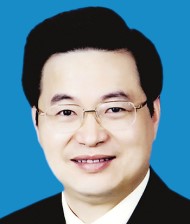
Chen Yixin
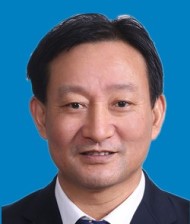
Jiang Jinquan
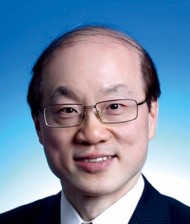
Liu Jieyi
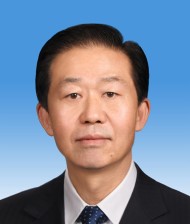
Xiao Jie
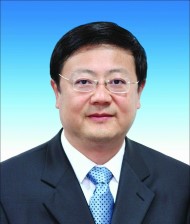
✅ Chen Jining
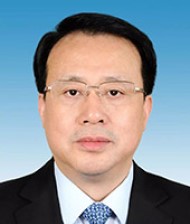
Gong Zheng
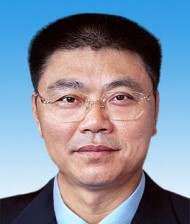
Wang Menghui
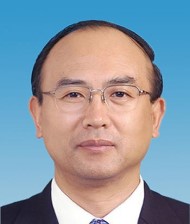
Xu Qin
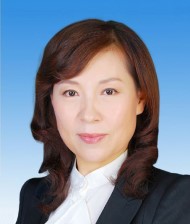
Wang Lixia
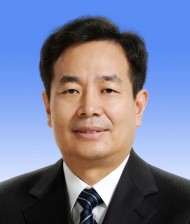
Chen Xiaojiang
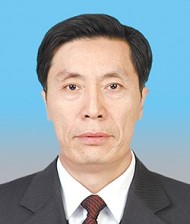
Jiang Xinzhi
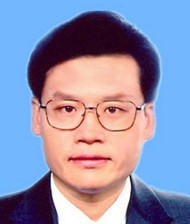
Meng Xiangfeng
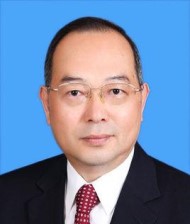
Yang Zhenwu
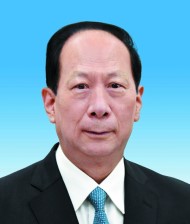
✅ Shi Taifeng
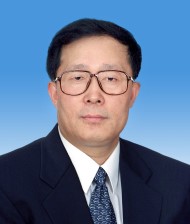
✅ Li Hongzhong
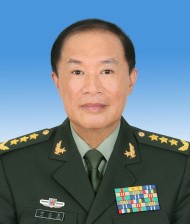
✅ He Weidong
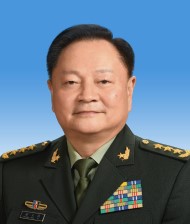
✅ Zhang Youxia
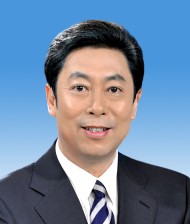
✅ Chen Wenqing
Top Contenders for the 20th Politburo Standing Committee
 Download Profile as PDF
Download Profile as PDF
Xi Jinping 习近平
- Born 1953
- General Secretary of the Chinese Communist Party (CCP) (2012–present)
- President of the People’s Republic of China (PRC) (2013–present)
- Chairman of the Central Military Commission (CMC) (2012–present)
- Member of the Politburo Standing Committee (PSC) (2007–present)
- Chairman of the National Security Committee (2013–present)
- Head of the Central Comprehensive Reform Committee (2013–present)
- Head of the Central Foreign Affairs Committee (2013–present)
- Head of the Central Audit Committee (2018–present)
- Head of the Central Leading Group for Taiwan Affairs (2012–present)
- Head of the Central Financial and Economic Affairs Committee of the CCP Central Committee (2013–present)
- Head of the Central Network Security and Information Technology Committee (2014–present)
- Head of the CMC Central Leading Group for Deepening Reforms of National Defense and the Military (2014–present)
- Commander in Chief of the Joint Operations Command Center of the People’s Liberation Army (PLA) (2016–present)
- Chairman of the Central Military and Civilian Integration Development Committee (2017–present)
- Head of the Central Committee for Comprehensive Ruling by Law (2018–present)
- Member of the Politburo (2007–present)
- Full member of the Central Committee of the CCP (2002–present)
Personal and Professional Background
Xi Jinping was born on June 15, 1953, in Beijing. His ancestral home is in Fuping County, Shaanxi Province. Xi was a “sent-down youth” at an agricultural commune in Yanchuan County, Shaanxi (1969–75).1 He joined the Chinese Communist Party (CCP) in 1974. Xi received his undergraduate education in chemical engineering from Tsinghua University in Beijing (1975–79) and later graduated with a doctoral degree in law (Marxism) from the Institute of Humanities and Social Sciences at Tsinghua University (via part-time studies, 1998–2002).
Early in his career (1979–82), Xi served as a personal secretary (mishu) to Geng Biao, then minister of defense. Subsequently, Xi served as deputy secretary and then secretary of Zhengding County, Hebei Province (1982–85), and thereafter in Fujian Province as executive vice mayor of Xiamen City (1985–88), party secretary of Ningde County (1988–90), party secretary of Fuzhou City (1990–96), deputy party secretary of Fujian Province (1996–2002), and governor of Fujian Province (1999–2002). After his time in Fujian, Xi moved to Zhejiang Province, where he served as governor (2002–03) and party secretary (2002–07). In March 2007, Xi was appointed party secretary of Shanghai. Seven months later, he was transferred to Beijing to serve as a Politburo Standing Committee member (2007–present) and executive secretary of the Secretariat of the CCP Central Committee (2007–12). In March 2008, he was elected PRC vice president (2008–13). Xi was in charge of preparations for both the 2008 Summer Olympics in Beijing and the 2009 celebrations commemorating the sixtieth anniversary of the founding of the PRC. He also served as president of the Central Party School (2007–12), the most important venue in the CCP for training officials and conducting research on ideology and policy. Xi was elected as General Secretary of the CCP Central Committee and Chairman of the CMC at the 18th Party Congress in November 2012. He was then elected president of the PRC at the 12th National People’s Congress in March 2013. Xi was reelected as general secretary of the CCP and chairman of the CMC at the 19th Party Congress in October 2017, then as president of the PRC at the 13th National People’s Congress in March 2018. He was first elected to the Central Committee as an alternate member at the 15th Party Congress in 1997.
Family and Patron-Client Ties
Xi is a princeling; he is the son of Xi Zhongxun, a former Politburo member and vice premier who was one of the architects of China’s Special Economic Zones in the early 1980s.2 Xi Jinping is widely considered to be a protégé of both former PRC president Jiang Zemin and former PRC vice president Zeng Qinghong. Xi’s first marriage produced no children. His ex-wife, Ke Lingling, is the daughter of Ke Hua, former PRC ambassador to the United Kingdom, where Ke Lingling now lives. Xi’s second marriage was to his current wife, Peng Liyuan. Peng is a famous Chinese folksinger who previously served in the People’s Liberation Army (PLA) at the rank of major general. She served as president of the PLA General Political Department Song and Dance Troupe and president of the PLA Art Institute. Their only daughter, Xi Mingze, received her undergraduate degree in psychology from Harvard University (2010–14) and later attended a graduate program in the same field at a university in Beijing.
Political Prospects and Policy Preferences
Throughout his leadership over the past decade, Xi has proven himself to be China’s strongest leader since Deng Xiaoping. Of the many noteworthy developments from what the Chinese called “Xi’s New Era,” the following four major moves stand out:
Anti-Graft Campaign – With the support of his principal political ally in the PSC, “anti-corruption czar” Wang Qishan, Xi launched a remarkably bold national anti-graft campaign. The campaign has resulted in the purges of not only retired heavyweight leaders such as former PSC member Zhou Yongkang, but also about 11 percent of the members of the 18th Central Committee, including Politburo member Sun Zhengcai. To some extent, the overriding objective of his anti-corruption campaign has been to restore the Chinese public’s faith in its ruling party, which lost public trust in the wake of the Bo Xilai scandal and the Ling Jihua incident.3
Military Reform – Xi achieved a milestone victory in restructuring the PLA through efforts that have been officially referred to as “military reform.” Reform efforts have centered on marginalizing the four PLA general departments that had undermined the authority of the civilian-led CMC; transforming China’s military operations from a Russian-style, army-centric system toward what analysts call a “Western-style joint command” system; and swiftly promoting “young guards” to top positions in the officer corps. Of the 66 military members of the 19th Central Committee, 60 (91 percent) were newcomers.4
Poverty Elimination – Xi was not the first leader to initiate a poverty reduction campaign in China, but he was the first leader to announce the successful “elimination of absolute poverty” in the country. Over the past decade, the Xi administration has allocated far more funding to poverty reduction than the proceeding Jiang and Hu administrations. Xi also adopted a new approach called “precision poverty alleviation,” in which local governments were required to take targeted measures to help poverty-stricken villages and households. The Chinese authorities claimed that no other country has been able to lift hundreds of millions of people out of poverty in such a short time.
Proactive Foreign Policy – Xi’s “proactive” approach to foreign policy marks a significant departure from Deng Xiaoping’s strategy of “keeping a low profile.” Xi’s efforts have sought to showcase China’s rapid rise on the world stage under his leadership, including through the launch of the “Belt and Road Initiative” (BRI) and the Asian Infrastructure Investment Bank (AIIB), as well as China’s deepening engagement in international institutions and forums, most notably his speech at the Davos World Economic Forum in 2017. His efforts have also included concerted attempts to seek a “new model of great power relations” with the United States. In the wake of the rapid deterioration of U.S.-China relations in recent years, especially following Speaker of the U.S. House of Representatives Nancy Pelosi’s recent visit to Taiwan, the Chinese PLA held massive military exercises around Taiwan. As the Russian-Ukrainian war evolves and growing external pressures confront China, it is uncertain what position and means Xi will take toward Taiwan in his third term.
However, Xi has exhibited paradoxical preferences and tendencies on other domestic policy issues. For example, the objective of his economic policy, as articulated at the third plenum of the 18th Central Committee in 2013, has been to make the private sector the decisive driver of the Chinese economy. However, this policy was barely implemented. Xi has continued to favor China’s industrial policy and has called for making flagship state-owned enterprises “bigger and stronger.” His more recent call for “common prosperity” may resonate well with most of the population but will receive much criticism from private entrepreneurs in the country.
His attitude toward public intellectuals has proven similarly ambivalent. On the one hand, Xi has promoted Chinese think tanks, which are mostly staffed with academics. On the other, his politically conservative approach to governance — and in particular, his reliance on ideological oversight and media censorship — has left him at loggerheads with many of the country’s intellectuals. Critics often point to the arrests and harassment of human rights lawyers in China as examples that the rule of law in China has actually regressed under Xi’s leadership. Xi’s leadership has disillusioned liberal intellectuals since 2013, when authorities began cracking down on the open discussion of “seven subversive currents,” including universal values, constitutional democracy, human rights, civil society, and media freedom. Their perceptions of Xi as a Mao-like figure may have now crystallized.
The 2018 NPC meeting proposed removing a clause from the country’s constitution — added during the Deng Xiaoping era — which limits the presidency and vice presidency to two five-year terms. Undoing this restriction essentially lines Xi up to be “President for Life.” It appears that Xi has seized upon his moment at the pinnacle of accrued political capital to avoid becoming a lame duck and to cement his hold over the country for as long as he desires.
Xi will begin his third term as the party’s general secretary after the 20th Party Congress. He will rule the country with more of his own protégés in the Politburo and the Politburo Standing Committee rather than with his political allies, as was the case during his first two terms. This change in personnel indicates that Xi will be even more powerful than before. Nevertheless, he must begin preparing during his third term for the inevitable political succession in Zhongnanhai, even if he plans to stay for a fourth term.
Compiled by Cheng Li and the staff of the John L. Thornton China Center at BrookingsNotes
- “Sent-down youth” (插队知青) refers to young, educated urbanites who left their home cities to serve as manual laborers in the countryside during the Cultural Revolution.
- For more information on Xi’s family background and his early life experiences, see Liang Jian 梁剑, New Biography of Xi Jinping [习近平新传] (New York: Mirror Books, 2012), and Wu Ming 吴鸣, Biography of Xi Jinping [习近平传] (Hong Kong: 文化艺术出版社, 2008).
- For a detailed discussion of these cases, see Cheng Li, Chinese Politics in the Xi Jinping Era: Reassessing Collective Leadership (Washington, DC: The Brookings Institution Press, 2016), pp. 1–5, 23–24.
- This includes four military alternate members of the 18th Central Committee who were promoted to be full members of the 19th Central Committee. If these four leaders are excluded, 85 percent would be newcomers.
 Download Profile as PDF
Download Profile as PDF
Li Keqiang 李克强
- Born 1955
- Premier of the State Council (2013–present)
- Member of the 19th Politburo Standing Committee (2007–present)
- Vice Chairman of the National Security Committee (2013–present)
- Deputy Head of the Central Comprehensive Reform Committee (2013–present)
- Deputy Head of the Central Financial and Economic Affairs Commission of the CCP Central Committee (2013–present)
- Deputy Head of the Central Foreign Affairs Committee (2013-present)
- Vice Chairman of the Central Military and Civilian Integration Development Committee (2017–present)
- Deputy Head of the Central Committee for Comprehensive Ruling by Law (2018–present)
- Deputy Head of the Central Cyberspace Affairs Committee (2014–present)
- Chairman of the Committee on Organizational Structure of the Central Committee of the CCP (2012–present)
- Chairman of the National Defense Mobilization Committee (2013–present)
- Director of the State Energy Commission (2013–present)
- Head of the National Leading Group for Climate Change and for Energy Conservation and Reduction of Pollution Discharge (2013–present)
- Head of the State Council Leading Group for Rejuvenating the Northeast Region and Other Old Industrial Bases (2013–present)
- Head of the State Council Leading Group for Western Regional Development (2013–present)
- Head of the State Council Three Gorges Project Construction Committee (2008–present)
- Head of the State Council South-to-North Water Diversion Project Construction Committee (2008–present)
- Head of the State Council Leading Group for Deepening Medical and Health System Reform (2008–present)
- Head of the National Science and Technology Leading Group (2018–present)
- Head of the Central Leading Group for Covid-19 Outbreak Response (2020–present)
- Member of the Politburo (2007–present)
- Full member of the Central Committee of the CCP (1997–present)
Personal and Professional Background
Li Keqiang was born on July 1, 1955, in Dingyuan County, Anhui Province. Li joined the Chinese Communist Party (CCP) in 1976. He was a “sent-down youth” at an agricultural commune in Fengyang County, Anhui (1974–76).1 He served as party secretary of a production brigade in the county (1976–78). Li received a bachelor’s degree in law (1978–82) and a doctoral degree in economics (via part-time studies, 1988–94) from Peking University. As an undergraduate majoring in law, Li studied under Professor Gong Xiangrui, a well-known, British-educated expert on Western political and administrative systems. Li and his classmates translated important legal works from English into Chinese, including Lord Denning’s The Due Process of Law and A History of the British Constitution.2 As a Ph.D. student in economics, Li studied under Li Yining, a well-known economist whose theories have been instrumental in guiding China’s state-owned enterprise reform.
Li advanced his early career primarily through the Chinese Communist Youth League (CCYL), serving as secretary of the CCYL Committee at Peking University (1982–83). Within the Secretariat of the CCYL Central Committee, Li served as alternate member (1983–85), secretary (1985–93), and first secretary (1993–98). In 1998, Li was transferred to Henan Province, where he served as governor (1998–2003) and, concurrently, deputy party secretary (1998–2002) and then party secretary (2002–04). Li then served as party secretary of Liaoning Province (2004–07). In October 2007, he was promoted to be a member of the Politburo Standing Committee (2007–present) and, shortly thereafter, served as executive vice premier of the State Council (2008–13). He was first elected to the Central Committee as a full member at the 15th Party Congress in 1997. Li remained on the Politburo Standing Committee after the 19th Party Congress and retained his premiership for a second term at the 13th National People’s Congress in March 2018.
Family and Patron-Client Ties
Li comes from a mid-level official family. His father, Li Fengsan, was a county-level cadre in Fengyang County, Anhui Province.3 Li’s wife, Cheng Hong, was an English language and literature professor at the Capital University of Economics and Business in Beijing. She received her undergraduate degree in English at the PLA Foreign Language Institute in Luoyang and her doctoral degree in literature at the Chinese Academy of Social Science. She was a visiting scholar at Brown University in the mid-1990s. Li’s father-in-law, Cheng Jinrui, served as deputy secretary of the Henan Provincial CCYL Committee. Li’s mother-in-law, Liu Yiqing, was a journalist at the Xinhua News Agency. Li Keqiang and Cheng Hong have one daughter, who received her undergraduate degree from Peking University and later studied in the United States, according to some unverified sources.
Li is widely considered to be a protégé of Hu Jintao. Li began working in the CCYL Central Committee at the end of 1982, precisely when Hu Jintao became secretary of the CCYL. Li Keqiang worked closely with Hu, assisting him in convening the Sixth National Conference of the All-China Youth Federation in August 1983. Having been nominated by Hu, Li was promoted to alternate member of the CCYL Secretariat three months later. When Hu was made first secretary of the CCYL in 1985, Li became a full member of the Secretariat. For most of the Hu era, Li was seen as a possible successor to his mentor.
Political Prospects and Policy Preferences
Compared to his two predecessors, Premier Zhu Rongji and Premier Wen Jiabao, Li Keqiang’s power and authority have been noticeably limited — even on economic policy, which has traditionally fallen under the purview of the premier. Observers argue that Premier Li has been marginalized, as Xi has taken over all of the top posts in economic affairs.4 Nevertheless, in his first term as premier, Li promoted a number of policy priorities. These included township-centered urbanization, affordable housing, employment, food security, public health care, clean energy technology, and the reduction of bureaucratic barriers for private sector development. Li has also often addressed the issue of economic disparity, especially the large low-income population in the country despite the growth of the Chinese middle class.5
In particular, Li has frequently called for “mass entrepreneurship and innovation.” This policy has been credited with China’s technological development for almost a decade, as evidenced by the vitality of China’s e-commerce and e-payment systems. His township-centered urbanization, however, was regarded by Xi’s economic team as neither desirable (due to its resulting resource inefficiency and widespread pollution) nor feasible (because young people are less interested in staying in small towns) and thus was largely replaced by a development strategy focused on large urban clusters.
At a time when Xi enjoys tremendous individual power, Li can potentially be viewed as a balancing force within the political establishment — though not an impressive one thus far. In March 2022, Li confirmed that this would be his last year serving as premier. Li could remain a Politburo Standing Committee (PSC) member at the 20th Party Congress; however, he may step down from the PSC this October and retire from his government position next March, as did his predecessors Zhu Rongji and Wen Jiabao.
Compiled by Cheng Li and the staff of the John L. Thornton China Center at BrookingsNotes
- “Sent-down youth” (插队知青) refers to young, educated urbanites who left their home cities to serve as manual laborers in the countryside during the Cultural Revolution.
- Li Meng, “Li Keqiang and the class of ’77 at the Department of Law at Peking University” [李克强所在的北大法律系77级], Democracy and Law [民主与法制], October 26, 2009.
- For more information about Li Keqiang’s family background and his early experiences, see Hong Qing 洪清, He will be China’s Top Manager: The Biography of Li Keqiang [他将是中国大管家—李克强传] (New York: Mirror Books, 2010).
- Jeremy Page, Bob Davis, and Lingling Wei, “Xi Weakens Role of Beijing’s No. 2,” Wall Street Journal, December 20, 2013.
- “Premier Li Keqiang attended the press conference and answered questions from Chinese and foreign journalists.” [李克强总理出席记者会并回答中外记者提问]. Xinhua News Agency, May 29, 2020, http://www.xinhuanet.com/politics/2020-05/29/c_1126047196.htm.
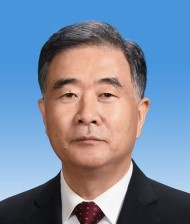 Download Profile as PDF
Download Profile as PDF
Wang Yang 汪洋
- Born 1955
- Chairman of the Chinese People’s Political Consultative Conference (CPPCC) (2018–present)
- Member of the 19th Politburo Standing Committee (2017–present)
- Head of the Central Coordination Group for Tibet Affairs (2018–present)
- Head of the Central Coordination Group for Xinjiang Affairs (2019–present)
- Deputy Head of the Central Leading Group for Taiwan Affairs (2018–present)
- Member of the Politburo (2007–present)
- Full member of the Central Committee of the CCP (2007–present)
Personal and Professional Background
Wang Yang was born on March 12, 1955, in Suzhou County, Anhui Province. He joined the Chinese Communist Party (CCP) in 1975. He attended a program in political economy at the Central Party School (CPS) in Beijing (1979–80), received a bachelor’s degree in public administration from the CPS (via correspondence courses, 1989–92), and received a master’s in management science from the University of Science and Technology of China in Hefei City, Anhui (via part-time studies, 1993–95). Wang also twice pursued provincial-ministerial-level leaders’ short-term study programs at the CPS (in 1997 and 2001).
Wang began working as a manual laborer and then served as manager in a food factory in Suxian County, Anhui (1972–76). He advanced his career first through the Chinese Communist Youth League (CCYL), serving as CCYL deputy secretary of Suxian County (1981–82), propaganda director of the CCYL Anhui Provincial Committee (1982–83), and deputy secretary of the CCYL Anhui Provincial Committee (1983–84). Next, he served as deputy director and then director of the Anhui Provincial Sports Commission (1984–88); as mayor and deputy party secretary of Tongling City, Anhui (1988–92); and, concurrently, as chairman of Anhui Province’s Economic Planning Commission and assistant governor of the province (1992–93). At the age of 38, Wang was appointed executive vice-governor of Anhui Province (1993–99) and concurrently deputy party secretary of the province (1998–99). He was later transferred to the central government, where he served as vice-minister of the State Development Planning Commission (SDPC) (1999–2003) and then as deputy secretary-general (chief of staff) of the State Council (2003–05). He next served as party secretary of Chongqing (2005–07) and then party secretary of Guangdong (2007–12). Wang was then appointed vice-premier of the State Council (2013–18). Wang was first elected to the Central Committee as an alternate member at the 16th Party Congress in 2002.
Family and Patron-Client Ties
Wang was born into a family of humble means and lost his father at a young age.1 As the eldest child, he began working at the age of 17 to help support his family.2 Wang is widely considered a protégé of Hu Jintao, with whom he developed strong patron-client ties in the early 1980s when Hu was head of the CCYL and Wang was deputy secretary of the Anhui Provincial CCYL Committee. Some PRC journalists have reported that Deng Xiaoping “discovered” Wang Yang in 1992 during a visit to Anhui when Wang was the 37-year-old mayor of Tongling City. Deng was quoted as saying, “Wang Yang is an exceptional talent.”3
Wang’s wife, Zhu Mali, is the daughter of a local leader; her father, Zhu Jianyuan, was deputy head of Suxian Prefecture. Wang and his wife have one daughter, Wang Xisha, who graduated from Peking University’s Guanghua School of Management and received a master’s degree from Tufts University. Her husband, Zhang Xinliang (Nicholas Zhang), is the grandson of former minister of defense Zhang Aiping. Zhang Xinliang received his bachelor’s degree in international economics from Georgetown University.
Political Prospects and Policy Preferences
Wang has broad leadership experience in the central government (the SDPC and the State Council) and major provincial and municipal posts (in inland Chongqing and coastal Guangdong). While serving in these positions, Wang noticeably promoted certain policy initiatives. These included transforming China’s economy from being export-driven and relying on cheap labor to an innovation-led model powered by domestic consumption; strengthening the private sector and foreign trade; arguing for the prioritization of economic growth over wealth redistribution (“making the cake bigger”);4 promoting intra-party democracy and village elections; adopting a “soft approach” to managing public protests; increasing media transparency; and implementing bolder political reforms. As for U.S.-China relations, Wang has compared the relationship to a “married couple,” once stating that China and the U.S. should not “choose divorce.”5
Although his current position as chairman of the CPPCC is considered the least important on the Politburo Standing Committee, Wang’s reputation as a reformer and his popularity among Chinese liberal intellectuals and private entrepreneurs makes him a formidable contender for influence. Wang may remain on the PSC for another five-year term after 2022, and he could also be a candidate for premier in 2023. If he assumes that position, it will reflect President Xi’s intention to drastically change domestic policy in his third term or compromise based on possible pressure from the political establishment and interest groups. However, Wang may also step down from the PSC at the 20th Party Congress or serve in a more ceremonial governmental position, such as vice president of the PRC.
Compiled by Cheng Li and the staff of the John L. Thornton China Center at BrookingsNotes
- According to one unverified source, Wang’s father served as party secretary of a food company in Suxian County.
- For more information about Wang Yang’s family background and his early experiences, see Dou Zijia 窦梓稼, Biography of Wang Yang: That “Wolf” in China’s Political Arena [汪洋传: 中国政坛那匹 “狼 ”] (New York: Mirror Books, 2009), and Wang Yaohua 王耀华, Competition among Provincial Chiefs [诸侯争锋] (New York: Mirror Books, 2009), pp. 13–58. For Wang’s recent views on and efforts toward political and economic reforms in Guangdong, see Cheng Li, “Hu’s Southern Expedition: Changing Leadership in Guangdong,” China Leadership Monitor, No. 24, Spring 2008.
- Earth Week [大地周刊], No. 23, 2009; also see http://news.hexun.vnet.cn/2010-01-02/122228741.html.
- 方鸣 Fang Ming, “ Is Bo & Wang’s spat a war over party line?” [路线之争?汪薄”蛋糕论”各出招”]. Duowei, July 17, 2011, https://web.archive.org/web/20120520043505/http:/china.dwnews.com/news/2011-07-14/57906363.html.
- 汪洋, “中美像夫妻 不能走离婚路.” Southern Metropolis Daily [南方都市报], July 12, 2013, http://finance.sina.com.cn/china/20130712/035916098650.shtml.
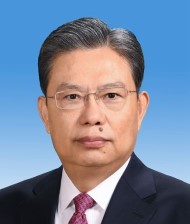 Download Profile as PDF
Download Profile as PDF
Zhao Leji 赵乐际
- Born 1957
- Secretary of the Central Commission for Discipline Inspection (CCDI) (2017–present)
- Member of the 19th Politburo Standing Committee (2017–present)
- Head of the Central Leading Group for Deepening Pilot Reform of the National Surveillance System (2017–present)
- Head of the Central Leading Group for Inspection Work (2017–present)
- Deputy Head of the Central Leading Group for Party Building Work (2012–present)
- Member of the Politburo (2012–present)
- Full member of the Central Committee of the CCP (2002–present)
- Member of the CCDI (2017–present)
Personal and Professional Background
Zhao Leji was born on March 8, 1957, in Xining City, Qinghai Province. His ancestral home is Xi’an, Shaanxi Province, and his parents served as cadres who moved from Xi’an to support frontier work in economically disadvantaged Qinghai. Zhao joined the Chinese Communist Party (CCP) in 1975. He was a “sent-down youth” at an agricultural commune in Qinghai’s Guide County during the Cultural Revolution (1974–75). He received an undergraduate degree in philosophy from Peking University in Beijing (1977–80) and was part of the last class comprised of “worker-peasant-soldier students.” Zhao also attended two graduate programs via part-time studies: one in currency and banking at the Chinese Academy of Social Sciences (1996–98) and the other in politics at the Central Party School (2002–05).
Zhao joined the Qinghai provincial government’s Department of Commerce first as a communications officer (1975–77) and then as a clerk in the political division (1980–82). Between 1980 and 1983, he held various positions within the Qinghai Provincial Commerce School, including instructor, secretary of the Chinese Communist Youth League (CCYL), and deputy head of the dean’s office. Zhao continued to advance his career in Qinghai, returning to the Department of Commerce as deputy party secretary of the political division and as CCYL secretary (1983–84). He then was general manager and party secretary of the Electronic and Chemical Corporation of Qinghai (1984–86) before serving in the Qinghai provincial government’s Department of Commerce as deputy director and deputy party secretary (1986–91) and then director and party secretary (1991–94). Next, he was promoted to assistant governor (1993–94) and then vice-governor (1994–97) of Qinghai Province. Finally, he served as party secretary of Xining City (1997–99) and concurrently as deputy party secretary and governor of Qinghai (2000–03), becoming the youngest governor in the country at the age of 42. He then served as party secretary of Qinghai (2003–07).
After Qinghai, Zhao was transferred to Shaanxi Province, where he served as party secretary (2007–12). He then served as director of the Central Organization Department of the CCP Central Committee (2012–17). He was first elected to the Central Committee as a full member at the 16th Party Congress in 2002.
Family and Patron-Client Ties
Like Xi Jinping, Zhao Leji has a strong Shaanxi connection. His father, Zhao Ximin, was a native of Xi’an who studied in the Soviet Union and, like his son, worked in Qinghai for many years. Zhao Ximin served as vice-president and deputy editor of Qinghai Daily, president of Shaanxi People’s Education Publishing House, and deputy head of Haixi Mongol and Tibetan Autonomous Prefecture. According to unverified sources, Xi Jinping’s father, Xi Zhongxun, was a close friend of Zhao Leji’s grandfather’s brother, Zhao Shoushan, who was chairman of Qinghai and governor of Shaanxi in the early years of the PRC. As a native of Shaanxi, Zhao speaks with a strong regional accent. Some analysts have characterized him as the “spokesperson” of Xi Jinping’s “Shaanxi Gang.” Moreover, Zhao served as Shaanxi party secretary from 2007 to 2012.
Zhao left Shaanxi for Beijing in order to lead the Central Organization Department, which makes appointments for 4,000 senior positions in the party, government, military, state-owned enterprises, and other key institutions. As head of that department, Zhao Leji helped promote many of Xi Jinping’s protégés and like-minded officials to important posts during Xi’s first term.
Zhao Leji has three siblings. His younger brother, Zhao Leqin, also served as a leader in Shaanxi for more than two decades, holding posts such as party secretary of Shanyang County, deputy director of the Department of Transportation in the Shaanxi provincial government, and mayor of Hanzhong. Zhao Leqin was transferred from Shaanxi to Guangxi a few months after his brother became Shaanxi’s provincial party secretary. In January 2013, he was appointed party secretary of Guilin City, Guangxi. Zhao Leqin was also a delegate to the 19th Party Congress. Zhao Leqin is currently vice chairman of Qinghai’s provincial people’s congress (2018–present).
Political Prospects and Policy Preferences
Based on his previous work experience, Zhao Leji is well positioned on the policy front to carry out several of Xi’s long-standing objectives: poverty alleviation, strict enforcement of regulations on party officials, and establishment of a national supervision system.
Zhao has been a rising star in Chinese leadership for two decades: during the Hu Jintao era, Zhao served as a provincial party secretary in Qinghai and Shaanxi. Zhao’s tenure in Qinghai was marked by rapid economic growth and a tripling of the province’s GDP. Zhao is believed to take a soft approach to ethnic minority issues and has taken on environmentally conscious investment projects. During Xi’s first term, Zhao oversaw key personnel appointments. Now in charge of party discipline and supervision, Zhao has played a central role in Xi’s second term. The youngest member of the Politburo Standing Committee, Zhao will likely serve another five-year term. However, his dearth of leadership experience in foreign affairs and the State Council may undermine his chances of becoming the next premier or a successor to Xi Jinping. Nevertheless, he may serve as chairman of the National People’s Congress (NPC) or chairman of the Chinese People’s Political Consultative Conference (CPPCC) in 2023.
Compiled by Cheng Li and the staff of the John L. Thornton China Center at BrookingsNotes
- “Sent-down youth” (插队知青) refers to young, educated urbanites who left their home cities to serve as manual laborers in the countryside during the Cultural Revolution.
- See Xiang Jiangyu, Xi Jinping’s Team [习近平的团队] (New York: Mirror Books, 2013), p. 235.
- Zhao Shoushan’s close relationship with Xi Zhongxun is well documented. Li Jingning, “Xi Zhongxun and Zhao Shoushan” [Xi Zhongxun he Zhao Shoushan], Glory World [Yanhuang shijie], No. 3, 2012; also see http://www.todayonhistory.com/people/201611/19508.html.
- Ibid., p. 230. See also Yang Qingxi and Xia Fei, Provincial Chiefs Go to Beijing for the 18th Party Congress [18大诸侯进京] (New York: Mirror Books, 2010).
- For instance, Zhao Leji has aggressively promoted members of the Shaanxi Gang to important leadership posts. See Cheng Li, Chinese Politics in the Xi Jinping Era: Reassessing Collective Leadership (Washington, DC: Brookings Institution Press, 2016), pp. 316–19.
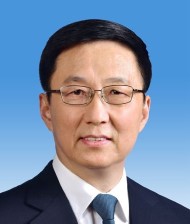 Download Profile as PDF
Download Profile as PDF
Han Zheng 韩正
- Born 1954
- Executive Vice Premier of the State Council (2018–present)
- Member of the 19th Politburo Standing Committee (2017–present)
- Deputy Head of the Central Comprehensive Reform Committee (2018–present)
- Head of the Three Gorges Project Construction Committee (2018–present)
- Head of the South-North Water Diversion Construction Project Committee (2018–present)
- Head of the Central Leading Group for “Belt and Road Initiative” Construction (2018–present)
- Head of the Beijing-Tianjin-Hebei Joint Development Leading Group (2018–present)
- Head of the Central Leading Group for the Development of the Guangdong-Hong Kong-Macao Greater Bay Area (2018–present)
- Head of the Central Leading Group for Hong Kong and Macao Affairs (2018–present)
- Head of the Central Leading Group for Promoting Integrated Development of the Yangtze River Delta (2018–present)
- Head of the Central Leading Group for Inspection on Ecological and Environmental Protection (2018–present)
- Deputy Head of the Central Integrated Military-Civilian Development Committee (2018–present)
- Director of the Office of the Central Integrated Military-Civilian Development Committee (2018–present)
- Member of the Central Financial and Economic Affairs Committee (2018–present)
- Member of the Politburo (2012–present)
- Full member of the Central Committee of the CCP (2002–present)
Personal and Professional Background
Han Zheng was born on April 22, 1954, in Shanghai. His ancestral home is Cixi City, Zhejiang Province. Han joined the Chinese Communist Party (CCP) in 1979. He was a “sent-down youth” at a collective farm in Chongming County, Shanghai, during the Cultural Revolution (1972–75).1 Han attended a two-year college program at Fudan University in Shanghai (1983–85), completed his undergraduate degree (via part-time studies) in politics at East China Normal University in Shanghai (1985–87), and graduated with a master’s degree in international political economy from East China Normal University (1991–94).
Han spent much of his early career working at the grassroots level. Han worked in the warehouse of a lifting installation company in Shanghai and as a clerk in the supply and marketing division of the same company. Han then served as deputy secretary of the Chinese Communist Youth League (CCYL) (1975–80) and as a clerk of the Shanghai Chemical Equipment Industry Co., Ltd (1980–82). Han was then made secretary of the CCYL committee of the Chemical Industry Bureau of the Shanghai Municipal Government (1982–86), deputy party secretary of the Shanghai School of Chemical Engineering (1986–87), party secretary and deputy director of the Shanghai No. 6 Rubber Shoes Factory (1987–88), and party secretary and deputy director of the Dazhonghua Rubber Plant in Shanghai (1988–90).
Subsequently, Han served as deputy secretary (1990–91) and secretary (1991–92) of the CCYL Shanghai Municipal Committee. He was later appointed deputy party secretary and head of the Luwan District in Shanghai (1992–95) and was eventually promoted to deputy secretary-general (chief of staff) of the Shanghai municipal government in addition to deputy party secretary of the Municipal Comprehensive Economic Work Committee, director of the City Planning Commission and director of the Securities Management Office (1995–97). He became a member of the Standing Committee of the Shanghai Municipal Party Committee while continuing to work as deputy secretary-general (1997–98).
Han continued to advance his career in Shanghai, serving as vice mayor (1998–2003), deputy party secretary (2002–12), mayor (2003–12), acting party secretary (2007), and finally party secretary (2012–17). He also served as deputy head of the 2010 Shanghai World Expo Organizing Committee and head of the Executive Committee (2004–11). He was first elected to the Central Committee as a full member at the 16th Party Congress in 2002.
Family and Patron-Client Ties
Prior to the 19th Party Congress in the fall of 2017, Han spent his entire career working in Shanghai. It was during his time in Shanghai that Han met five of his patron-mentors, namely Huang Ju, Wu Bangguo, Zhu Rongji, Zeng Qinghong, and Yu Zhengsheng, all of whom later served as members of the Politburo Standing Committee.2 Han has been widely recognized as a member of the Jiang Zemin-Zeng Qinghong “Shanghai Gang.” Although Han served as a top CCYL official in Shanghai, his promotions have been more closely aligned with Jiang’s Shanghai Gang than with the Hu Jintao-Li Keqiang CCYL faction.3 He also developed good relations with Xi Jinping when Han served as Xi’s deputy in Shanghai in 2007, before Xi moved to Beijing to serve as a member of the Politburo Standing Committee. Han appears to have earned Xi’s support, obtaining a Politburo seat after Xi became general secretary of the CCP in 2012.
Not much information is available about Han Zheng’s family. According to an unverified source, Han Zheng’s wife, Wan Ming, previously served as vice chair of the Shanghai Charity Foundation. The couple has one daughter.
Political Prospects and Policy Preferences
Having served for two decades as a top administrator in China’s pacesetting city, Shanghai, Han Zheng emerged from the 19th Party Congress as a top economic decision-maker in the national leadership. Han’s reputation as a competent and seasoned financial and economic technocrat, as well as his market-friendly policy orientation in cosmopolitan Shanghai, has generally made him well received by business communities both in China and abroad. Han has lead multiple central leading groups during his tenure as executive vice premier. Xi may choose Han as the next premier for several reasons, including an emphasis on policy continuity, the good working relationship between Xi and Han, and the need to first give a 6G leader the position of executive vice premier rather than the premiership. If this does not happen, Han may step down from the Politburo Standing Committee this October or serve in a more ceremonial governmental position, such as vice president of the PRC.
Compiled by Cheng Li and the staff of the John L. Thornton China Center at BrookingsNotes
- “Sent-down youth” (插队知青) refers to young, educated urbanites who left their home cities to serve as manual laborers in the countryside during the Cultural Revolution.
- In 1988, for example, Zhu Rongji, then mayor of Shanghai, visited the city’s Dazhonghua Rubber Plant, where Han Zheng was employed. During the visit, Zhu lauded Han’s work. See Xu Yanyan 许燕燕, “Han Zheng recalls Zhu Rongji’s visit to factory” [韩正回忆朱镕基下工厂], Yicai Web [第一财经网], August 14, 2013, (http://yicai.com/news/2939288.html).
- Cheng Li, Chinese Politics in the Xi Jinping Era: Reassessing Collective Leadership (Washington, DC: The Brookings Institution Press, 2016), p. 281.
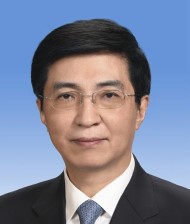 Download Profile as PDF
Download Profile as PDF
Wang Huning 王沪宁
- Born 1955
- Executive Secretary of the Secretariat of the CCP Central Committee (2017–present)
- Member of the 19th Politburo Standing Committee (PSC) (2017–present)
- Head of the Central Spiritual Civilization Steering Committee of the CCP Central Committee (2017–present)
- Head of the Central Leading Group for Propaganda and Ideology (2017–present)
- Head of the Central Leading Group for Party Building Work (2017–present)
- Deputy Head of the Central Institutional Organization Committee (2017–present)
- Deputy Head of the Central Comprehensive Reform Committee (2018–present)
- Deputy Head of the Central Committee for Comprehensive Ruling by Law (2018–present)
- Deputy Head of the Central Integrated Military-Civilian Development Committee (2018–present)
- Deputy Head of the Central Cyberspace Affairs Committee (2018–present)
- Deputy Head of the Central Leading Group for Covid-19 Outbreak Response (2020–present)
- Member of the Politburo (2012–present)
- Full member of the Central Committee of the CCP (2002–present)
Personal and Professional Background
Wang Huning was born on October 6, 1955, in Shanghai. His ancestral/family home is in Laizhou County, Shandong Province. Wang joined the Chinese Communist Party (CCP) in 1984. He studied French language as part of the Cadre Training Class at Shanghai Normal University in Shanghai (1972–77) and pursued a graduate program in international politics at Fudan University in Shanghai (1978–81), where he also received a master’s degree in law (1981). Wang was a visiting scholar at the University of Iowa, the University of Michigan, and the University of California, Berkeley (1988–89).
Wang began his career as a cadre in the Publication Bureau of the Shanghai municipal government (1977–78). After receiving his master’s degree, Wang stayed on at Fudan University and served as an instructor, associate professor, and professor (1981–89), then as chairman of the Department of International Politics (1989–94), and finally as dean of the law school (1994–95). Wang moved to Beijing in 1995 to serve as head of the Political Affairs Division of the Central Policy Research Office (CPRO) of the CCP Central Committee (1995–98). He then became deputy director of the CPRO (1998–2002) and, later, director (2002–20). He also served as secretary-general (chief of staff) and director of the General Office of the Central Leading Group for Comprehensively Deepening Reforms (2013–18). Wang was first elected to the Central Committee as a full member at the 16th Party Congress in 2002.
Family and Patron-Client Ties
Wang Huning is one of only a few leaders favored by all three of the most recent party bosses: Jiang Zemin, Hu Jintao, and Xi Jinping. Accordingly, Wang has earned the nickname “chief advisor of Zhongnanhai” and “China’s Kissinger.”1 Wang is thought to have served as an informal conduit between Jiang and Hu during Hu’s leadership. In the late 1980s, Wang established his patron-mentor relationship with Jiang Zemin and Zeng Qinghong, who were then top leaders in Shanghai. After Hu succeeded Jiang as general secretary of the CCP and president of the PRC in 2002 and 2003, respectively, Wang became a top aide to Hu and frequently accompanied him on domestic and international trips. Like Xi’s chief of staff, Li Zhanshu, Wang Huning was often beside Xi Jinping throughout his first term, taking part in almost all important domestic and international trips and meetings.
Wang’s ex-wife, Zhou Qi, is the daughter of a leader who worked in state security and intelligence and reached the rank of vice-minister. Wang and Zhou were classmates in the master’s program in international politics at Fudan University, and Zhou later received a Ph.D. in political science from Johns Hopkins University’s Nitze School of Advanced International Studies. The couple divorced in 1996 and do not have any children. Wang married a nurse in Zhongnanhai several years ago, and the couple has one child.
Political Prospects and Policy Preferences
Wang is believed to have been a principal drafter of the “three represents” theory expounded by Jiang.2 In his early career as a political science professor and law school dean at Fudan University in the 1980s, Wang published many books on comparative politics and political theory. At that time, he was considered a leading scholar and advocate for neo-authoritarianism.3 Wang Huning recently re-published a 1986 article in which he argued that “public security, prosecutors, and the court merging into one” was the main reason for the prevalence of human rights violations, such as torture and vandalism, during the Cultural Revolution. He stated unambiguously that “the Cultural Revolution could happen only in a country without an independent judicial system.”4
Over the past three decades, virtually all PSC members have served in provincial or municipal leadership roles or as government leaders on the State Council, and most have served in more than two province-level administrations. In contrast, Wang advanced his political and professional career primarily through work in the CPRO, a prominent CCP think tank. Wang thus represents a new channel for elite recruitment. Further, his rise to the top leadership is very much in line with Xi Jinping’s call to build new think tanks with Chinese characteristics, which aims to further China’s strategic mission and integrate the Western-style “revolving door” into China’s political system.5
Under Xi’s leadership, Wang is believed to be the source of Xi’s signature political concepts and a more assertive foreign policy.6 Wang emphasizes the importance of respecting the prevailing political, social, and cultural conditions in China.7 He argues that China’s reform should not be pursued at the expense of stability and that strong, unified central leadership is crucial to China’s development.
Wang may remain on the PSC for another five-year term after 2022. If so, he may serve as chairman of the National People’s Congress (NPC) or chairman of the Chinese People’s Political Consultative Conference (CPPCC) in 2023. But more likely, Wang will step down from the PSC at the 20th Party Congress and serve in a more ceremonial governmental position.
Compiled by Cheng Li and the staff of the John L. Thornton China Center at BrookingsNotes
- Pratik Jakhar, “China party congress: The rising stars of China’s Communist Party,” BBC Online, October 8, 2017, http://www.bbc.com/news/world-asia-china-41322178.
- In contrast to the Marxist notion that the Communist Party should be the “vanguard of the working class,” Jiang’s theory claims that the CCP should represent the “developmental needs of the advanced forces of production,” the “forward direction of advanced culture,” and the “fundamental interests of the majority of the Chinese people.”
- For the early career of Wang Huning and his writings, see “Hu Jintao’s two mysterious right-hand men: Ling Jihua and Wang Huning” [胡锦涛身边的神秘左右手:令计划和王沪宁], Social Perspective [社会聚焦], posted on April 7, 2010, http://bbs.tiexue.net/post2_4181927_1.html.
- Wang Huning, “Reflections on the Cultural Revolution and the Reform of China’s Political System” [文革反思与政治改 革], Readers’ Digest [文摘], February 23, 2012, originally appeared in The World Economic Herald [世界经济导报], May 1986.
- Cheng Li and Lucy Xu, “Chinese Think Tanks: A New ‘Revolving Door’ for Elite Recruitment,” China-US Focus, January 26, 2017, http://www.chinausfocus.com/political-social-development/chinese-think-tanks-a-new-revolving-door-for-elite-recruitment.
- Hugh Hewitt, ”In China, Wang Huning is the man to see”, The Washington Post, December 16, 2021, https://www.washingtonpost.com/opinions/2021/12/16/china-wang-huning-is-man-see/
- Yi Wang, “Meet the mastermind behind Xi Jinping’s power”, The Washington Post, November 6, 2017, https://www.washingtonpost.com/news/theworldpost/wp/2017/11/06/wang-huning/
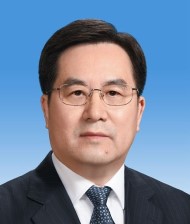 Download Profile as PDF
Download Profile as PDF
Ding Xuexiang 丁薛祥
- Born 1962
- Director of the General Office of the CCP Central Committee (2017–present)
- Member of the Politburo (2017–present)
- Director of the Office of the General Secretary (2013–present)
- Director of the Office of the President of the People’s Republic of China (2013–present)
- Head of the Central Party and State Organs Working Committee (formerly Head of the Central Work Committee for Organs of the CCP Central Committee) (2017–present)
- Head of the Central Confidential Commission of the CCP Central Committee (2017–present)
- Director of the Office of the National Security Committee (2018–present)
- Member of the Secretariat of the Central Committee of the CCP (2017–present)
- Full member of the Central Committee of the CCP (2017–present)
Personal and Professional Background
Ding Xuexiang was born on September 13, 1962, in Nantong City, Jiangsu Province. He joined the Chinese Communist Party (CCP) in 1984. Ding enrolled in college at the age of 16 and received a bachelor’s degree in engineering from the Department of Machinery Manufacturing at the Northeast Institute of Heavy Machinery in Qiqihar City, Heilongjiang Province (1978–82).1 Ding also received a master’s degree in science and management from the Fudan University School of Management (via part-time studies, 1989–94).
Ding advanced his early political career in Shanghai. After completing his undergraduate studies in 1982, Ding began working at the Shanghai Research Institute of Materials, where he served as a research fellow (1982–84); deputy director of the General Office and, concurrently, secretary of the Chinese Communist Youth League (CCYL) (1984–88); director of the General Office and director of the Propaganda Department (1988–92); and director of the No. 9 Department (1992–94). He was then promoted to be deputy director of the institute (1994–96). Finally, he was promoted to act concurrently as director and deputy party secretary (1996–99).
After that, Ding served as deputy director of the Shanghai Municipal Science and Technology Commission (1999–2001); deputy party secretary and head of the Zhabei District of Shanghai (2001–04); and deputy director of the Organization Department of the Shanghai Municipal Party Committee and, concurrently, director of the Personnel Bureau of the Shanghai municipal government (2004–06). In 2006, Ding was appointed deputy secretary-general (deputy chief of staff) and, concurrently, director of the General Office of the Shanghai Municipal Party Committee. In 2007, he was promoted to be secretary-general (chief of staff), primarily assisting the party secretaries of Shanghai: Chen Liangyu (2006–07), then Han Zheng and Xi Jinping (2006–07), and finally Yu Zhengsheng (2007–12). Ding served as a member of the Standing Committee of the Shanghai Municipal Party Committee (2007–13) and as secretary of the Political and Legal Committee of the Shanghai Municipal Party Committee (2012–2013). He then served as executive deputy director of the General Office of the CCP Central Committee (2016–17). He was first elected to the Central Committee as an alternate member at the 18th Party Congress in 2012.
Family and Patron-Client Ties
Ding comes from a humble family background and has no special political connections in Beijing. Although he only worked for Xi Jinping for a few months in 2007, Ding appears to have gained Xi’s trust. While Ding was director of the General Office and deputy secretary-general of the Shanghai Municipal Party Committee, he reportedly impressed Xi with his administrative skills, political counsel, and low-profile, humble personality.2 Within two months, Xi promoted Ding as secretary-general and standing member of the Shanghai Municipal Party Committee.
In May 2013, a few months after Xi Jinping became general secretary of the CCP, Ding was transferred to Beijing. There, Ding served as deputy director of the General Office of the CCP Central Committee and, concurrently, director of the Office of the General Secretary, becoming Xi’s principal mishu (personal assistant).3 Ding is married, and his wife previously worked in the education sector. The couple has a son who works at the China Development Bank in Beijing.
Policy Preferences and Political Prospects
Ding is known for his writing skills, sharp memory, and ability to effectively carry out the will of his boss.4 Ding’s extraordinary administrative capacity and political shrewdness are illustrated by his ability to not only survive politically but also further his career after his former boss, Chen Liangyu, had been purged. Having served primarily as a mishu (personal assistant) or chief of staff, Ding has revealed little about his policy preferences. Partly due to his over two-decade-long experience in a research institution focused on science and technology, he has often emphasized the crucial role of technological innovation in China’s domestic development and international competition.
As one of the three current Politburo members born in the 1960s, and as one of Xi’s most trusted confidants, Ding is expected to gain a seat on the Politburo Standing Committee at the 20th Party Congress. Given that Ding has neither served as a provincial or municipal Party secretary nor as a minister in the State Council, he will likely assume either the position currently held by Wang Huning as Executive Secretary of the Secretariat of the CCP Central Committee or the position of Secretary of the Central Commission for Discipline Inspection (CCDI).
Compiled by Cheng Li and the staff of the John L. Thornton China Center at BrookingsNotes
- The university is now known as Yanshan University.
- https://commondatastorage.googleapis.com/letscorp_archive/archives/53105.
- Cheng Li, Chinese Politics in the Xi Jinping Era: Reassessing Collective Leadership (Washington, DC: Brookings Institution Press, 2016), p. 345.
- “Xi names low-key outsider as personal secretary,” South China Morning Post, July 25, 2013, http://www.scmp.com/news/china/article/1290050/xi-names-ding-xuexiang-personal-secretary.
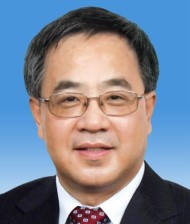 Download Profile as PDF
Download Profile as PDF
Hu Chunhua 胡春华
- Born 1963
- Vice Premier of the State Council (2018–present)
- Member of the Politburo (2012–present)
- Head of the State Council Leading Group on Poverty Alleviation and Development (2018–present)
- Head of the State Council Leading Group on Rural Works (2018–present)
- Head of the National Leading Group for Census on Poverty Alleviation (2019–present)
- Head of the National Leading Group for the Elimination of Wage Arrears for Migrant Workers (2019–present)
- Head of the State Council Leading Group on Employment Work (2019–present)
- Deputy Head of the Central Leading Group for “Belt and Road Initiative” Construction (2018–present)
- Full member of the Central Committee of the CCP (2007–present)
Personal and Professional Background
Hu Chunhua was born on April 1, 1963, in Wufeng County, Hubei Province. Hu joined the Chinese Communist Party (CCP) in 1983. He received a bachelor’s degree in Chinese literature from Peking University (1979–83) and a master’s degree (via part-time studies) in world economics from the Central Party School (CPS) (1996–99). He also took cadre training programs at the CPS in 1996-97 and 2000.
After graduating from Peking University, Hu went to Tibet, where he worked as a clerk at the Organization Department of the CCP Committee of Tibet (1983–84), as an official at the newspaper Tibet Youth Daily (1984–85), and as an official at the Tibet Hotel (1985–87). Hu advanced his political career largely through the Chinese Communist Youth League (CCYL). He served as deputy secretary (1987–92) and secretary (1992–95) of the CCYL in Tibet. He also worked as deputy head of Linzhi Prefecture, Tibet (1992), and as deputy party secretary and head of Shannan Prefecture, Tibet (1995–97). He then served as a member of the Secretariat of the CCYL National Committee and vice-chairman of China’s Youth Federation (1997–2001). In July 2001, Hu returned to Tibet, where he served as secretary-general (chief of staff) of the CCP Committee of Tibet (2001–03) and deputy party secretary and executive vice-governor of Tibet (2003–06).
Hu then served as the first secretary of the Secretariat of the CCYL Central Committee (2006–08). After that, Hu served as governor and deputy party secretary of Hebei Province (2008–09). In 2009, he was transferred to Inner Mongolia Autonomous Region, where he served as party secretary (2009–12) and chairman of the Inner Mongolia Autonomous Regional People’s Congress (2010–12). He then served as party secretary of Guangdong (2012–17). Hu was first elected to the Central Committee as a full member at the 17th Party Congress in 2007.
Family and Patron-Client Ties
Hu Chunhua was born into a family of very humble means. His parents were farmers in a poor and remote village within an ethnic minority autonomous county in Hubei Province. Hu Chunhua has six siblings. He was the first person from his county to attend Peking University. Hu volunteered to work in Tibet after graduation, where he established his patron-mentor relationship with Hu Jintao, who was then serving as party secretary (1988–92). Hu Chunhua has been widely characterized as “a carbon copy of Hu Jintao” and has even been called “little Hu.”1 Both come from humble family backgrounds, served as student leaders during their college years, advanced their political careers primarily through the CCYL, worked in arduous environments like Tibet, served as provincial party secretaries at a relatively young age, and have low-profile personalities.
Hu Chunhua and his wife were married in Tibet and have one daughter.
Policy Preferences and Political Prospects
Hu Chunhua was selected as a Politburo member in 2012 and is considered a front-runner among the so-called sixth generation leadership. Some analysts have viewed Hu’s Politburo membership as a reflection of Deng Xiaoping’s political design for a “grandpa-designated successor.” This refers to the pattern whereby Deng designated Hu Jintao, Jiang Zemin designated Xi Jinping, and Hu Jintao designated Hu Chunhua to be the top leaders of the succeeding generations.2 One could also argue that the top leader intentionally (or as a compromise) chooses his successor from the rival faction in order to unite the party leadership. In other words, the party boss selects a “team of rivals” in order to consolidate power.3
Therefore, Chinese public expectations in the lead-up to the 19th Party Congress in 2017 were that Hu Chunhua would ascend to the 19th Politburo Standing Committee. The fact that Xi did not promote any sixth-generation leader to enter the PSC in 2017 and Xi’s move to abolish term limits for the PRC presidency in 2018 indicates that Hu’s chances of becoming a designated successor have diminished.
Yet, as the youngest vice premier of the State Council and a two-time Politburo member, Hu is still the highest-ranking leader of the sixth generation (leaders who were born in the 1960s). In the past five years, Hu has played a pivotal role in Xi’s poverty alleviation campaign, agricultural modernization programs, and the Belt and Road initiative.4 He will likely obtain a seat on the Politburo Standing Committee at the 20th Party Congress. It is unclear what position he will hold in the government in 2023. The three positions he is most likely to assume are chairman of the Chinese People’s Political Consultative Conference (CPPCC), premier, or executive vice premier.
Compiled by Cheng Li and the staff of the John L. Thornton China Center at BrookingsNotes
- For more discussion about Hu Chunhua’s patron-client ties with Hu Jintao, see Ren Huayi, The Sixth Generation: The CCP’s Last Generation of Successors [第六代:中共末代接班群] (New York: Mirror Books, 2010), and Ke Wei, The Rising Stars of the CCP’s Sixth Generation [中共第六代明星传] (Hong Kong: New Culture Press, 2010).
- Zhang Ping, “The sixth generation of leaders in the Chinese Communist Party was born out of speculations,” Deutsche Welle, November 21, 2012.
- Cheng Li, “China’s Team of Rivals,” Foreign Policy, March/April 2009, pp. 88–93.
- Aadil Brar,”Hu Chunhua has a chance at Chinese premiership and why it will have implications for India”, The Print, August 24, 2022, https://theprint.in/opinion/eye-on-china/hu-chunhua-has-a-chance-at-chinese-premiership-and-why-it-will-have-implications-for-india/1096425/
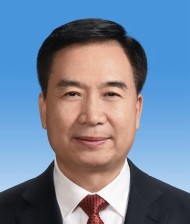 Download Profile as PDF
Download Profile as PDF
Li Xi 李希
- Born 1956
- Party Secretary of Guangdong (2017–present)
- Member of the Politburo (2017–present)
- Full member of the Central Committee of the CCP (2017–present)
Personal and Professional Background
Li was born on October 16, 1956, in Liangdang County, Gansu Province. Li joined the Chinese Communist Party (CCP) in 1982. He received an undergraduate education in Chinese language and literature from Northwest Normal University in Lanzhou City, Gansu Province (1978–82), and an MBA from the School of Economics and Management at Tsinghua University in Beijing (via part-time studies, 2008–11).
Li was a “sent-down youth” in the Yunping People’s Commune in Liangdang County, Gansu Province (1975–76).1 He then served as a clerk at the Culture and Education Bureau and the Party Committee of Liangdang County (1976–78). After graduating from college in 1982, he worked as a mishu (personal assistant) in the Department of Propaganda of the Gansu Provincial Party Committee (1982–85) and as a mishu in the office of Gansu Party Secretary Li Ziqi (1985–86). Li Xi worked as an official (1986–87), deputy division head (1987–90), and division head (1990–95) in the Organization Department of the Gansu Provincial Party Committee. He served as party secretary of Xigu District, Lanzhou City (1995–96). After that, he served as director of the Organization Department (1996–99) and, concurrently, as deputy party secretary (1999–2001) of the Lanzhou Municipal Party Committee. He served as party secretary of the Zhangye Prefecture Party Committee (2001–04), a period during which he attended a four-month mid-career training program at the Central Party School (2004). He became secretary-general (chief of staff) of the Gansu Provincial Party Committee for a few months in 2004 and then was transferred to Shaanxi, where he served concurrently as secretary-general and a member of the Standing Committee of the Shaanxi Provincial Party Committee (2004–06). He concurrently served as party secretary of the Yan’an Municipal Party Committee (2006–11).
In 2011, Li was transferred to Shanghai, where he served as director of the Organization Department and as a member of the Standing Committee of the Shanghai Municipal Party Committee (2011–13), and then as deputy party secretary of Shanghai (2013–14). He was appointed deputy party secretary and governor of Liaoning Province (2014–15) and then promoted to party secretary (2015–17). He was first elected to the Central Committee as an alternate member at the 17th Party Congress in 2007 and continued his alternate membership at the 18th Party Congress in 2012.
Family and Patron-Client Ties
Li Xi has strong ties with Xi Jinping. Their relationship can be traced to the mid-1980s, when Li Xi served as a personal assistant to Li Ziqi, who was then the party secretary of Gansu. Li Ziqi was born in Shaanxi and, as a 13-year-old in the 1930s, participated in the communist military uprising in the northwestern region, which was led by Xi Jinping’s father, Xi Zhongxun.2 Li Ziqi was persecuted in the early 1960s, the same period during which Xi Zhongxun was fired. Both were charged with conducting antisocialist activities but were later rehabilitated after the Cultural Revolution. In 1983, Xi Zhongxun nominated Li Ziqi to be party secretary of Gansu Province.3 It is believed that through this important connection with Li Ziqi, Li Xi came to know the Xi family, including Xi Jinping himself. They have remained friends ever since.
According to an overseas Chinese media source, Li Xi’s native county (Liangdang, Gansu Province) was where Xi Jinping’s father led the revolutionary uprising in 1932 — the only military uprising led by the CCP in the northwestern region of the country during the first civil war.4 According to one reporter, while Li Xi was a local leader in Liangdang, he “did an impressive job highlighting the historical significance of this uprising during the Communist red revolution.”5 Furthermore, when Li Xi was party secretary of Yan’an, he designated the location where Xi had worked as a sent-down youth as a “model village” of the province.6 The personal relationship between Xi Jinping and Li Xi has been widely reported in the Chinese media, reinforcing the public perception that Li is a confidant of Xi.7 Li’s rapid promotion in recent years suggests that Xi intends to make him a national leader. Li Xi also worked under Zhao Leji — presently a Politburo Standing Committee member — when both were in Shaanxi Province.
Policy Preferences and Political Prospects
As party secretary of Liaoning, Li Xi was known for his tough stance against corruption and his enthusiastic support for Xi’s call for more strict enforcement of party discipline. His previous leadership experience in Shanghai was primarily in party affairs. Li’s current position as party secretary of Guangdong, a major economic hub, has allowed him to gain much-needed leadership experience in economic affairs. A priority for Li will be promoting the economic integration of the Guangdong-Hong Kong-Macau Bay Area into a world-class urban cluster. Under Li’s leadership, Guangdong has become a principal driver for the promotion of the Maritime Silk Road project, coordinating the Pacific Islands arm of the Belt and Road initiative. Important components of this new strategy include technological and commercial innovation, as well as environmentally friendly urban development.
Li Xi’s strong ties with Xi Jinping and his broad leadership experience in Gansu, Shaanxi, Shanghai, Liaoning, and now Guangdong make him a leading contender for the next Politburo Standing Committee (PSC). If he obtains a seat on the PSC this October, Li will likely serve in one of the following three positions: chairman of the Chinese People’s Political Consultative Conference (CPPCC), executive secretary of the Secretariat of the CCP Central Committee, or secretary of the Central Commission for Discipline Inspection (CCDI).
Compiled by Cheng Li and the staff of the John L. Thornton China Center at BrookingsNotes
- “Sent-down youth” (插队知青) refers to young, educated urbanites who left their home cities to serve as manual laborers in the countryside during the Cultural Revolution.
- Cheng Li, Chinese Politics in the Xi Jinping Era: Reassessing Collective Leadership (Washington, DC: Brookings Institution Press, 2016), pp. 307–8.
- For further discussion on the strong ties between Li Ziqi and Xi Zhongxun, see Li Ziqi, “Deeply cherish the memory of Comrade Xi Zhongxun” [Shenqie mianhuai Xi Zhongxun tongzhi], Gansu Daily [Meiri Gansu], October 10, 2013, http://gansu.gansudaily.com.cn/system/2013/10/10/014708123.shtml.
- Chu Wen, “The political rise of the ‘Shaanxi Gang’: Four heavyweight leaders have entered the core power circle of the Chinese Communist Party” [Zhengtan ‘Shaanjun’ jueqi, sida hanjiang buru Zhonggong hexinquan], Duowei Net, July 3, 2015, http://china.dwnews.com/news/2015-07-03/59664886.html.
- Ibid.
- Ibid.
- Shi Qing, “Xi Jinping welcomes Li Xi–led party and government delegation from Yan’an to visit Shanghai” [Xi Jinping huanying Li Xi shuai Yan’an shi dangzheng daibiaotuan laihu fangwen], Oriental, August 18, 2007, http://sh.eastday.com/qtmt/20070818/u1a343068.html, and Fang Ledi, “Li Xi takes new office in Liaoning” [Li Xi lüxin Liaoning], Dagong, April 28, 2014, http://news.takungpao.com/mainland/focus/2014-04/2446110.html.
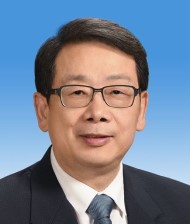 Download Profile as PDF
Download Profile as PDF
Chen Xi 陈希
- Born 1953
- Director of the Central Organization Department (2017–present)
- Member of the Politburo (2017–present)
- President of the Central Party School jointly with the China National School of Administration (2017–present)
- Deputy Head of the Central Leading Group for Inspection Work (2018–present)
- Deputy Head of the Central Leading Group for Party Building Work (2017–present)
- Executive Deputy Head of the Central Education Leading Group on the Theme of “Don’t Forget Your Original Ideal and Remember Your Mission” (2019–present)
- Member of the Secretariat of the Central Committee of the CCP (2017–present)
- Full member of the Central Committee of the CCP (2012–present)
Personal and Professional Background
Chen Xi was born on September 16, 1953, in Putian City, Fujian Province. He joined the Chinese Communist Party (CCP) in 1978. Chen completed his undergraduate studies in chemical engineering at Tsinghua University in Beijing (1975–79). After graduating, Chen worked as an instructor for five months in the Department of Chemical Engineering at Fuzhou University in Fuzhou City, Fujian Province (1979). Chen then obtained a master’s degree in chemical engineering from Tsinghua University (1979–82). He went on to conduct chemical engineering research as a visiting scholar at Stanford University (1990–92).
Before pursuing an undergraduate education, Chen had been a factory worker in a machinery plant affiliated with Fuzhou University (1970–75). After his graduate studies, Chen remained at Tsinghua and served in several positions in the Chinese Communist Youth League (CCYL) Committee of Tsinghua University, including as head of the Sports Department, deputy secretary (1982–84), and secretary (1984–90). He concurrently served as deputy head (1985–87) and head (1987–90) of the Department of Student Affairs of the CCP Committee of Tsinghua. After returning from Stanford University, Chen became deputy party secretary of the Chemical Engineering Department at Tsinghua (1992–93). His advancement at Tsinghua continued with his appointment as deputy party secretary (1993–2000), executive deputy party secretary (2000–2002), and then party secretary of Tsinghua University and concurrently chairman of the University Council (2002–08).
Chen then joined the Ministry of Education as a vice minister and deputy party secretary (2008–10), after which he was transferred to Liaoning Province to serve as deputy party secretary (2010–11). Chen then became party secretary of the China Association for Science and Technology (2011) and concurrently served as the association’s executive vice chairman and first secretary of the Secretariat (2011–13). He served as executive deputy director of the Central Organization Department (COD) (2013–17). Chen was a member of both the 16th and 17th Central Discipline Inspection Commissions (2002–12). He was first elected to the Central Committee as a full member at the 18th Party Congress in 2012.
Family and Patron-Client Ties
Xi Jinping has helped advance the careers of many leaders in his inner circle, but perhaps no one has received more direct assistance from him than Chen Xi.1 Xi Jinping and Chen Xi were classmates and roommates at Tsinghua University from 1975 to 1979. As sports fans who were also interested in politics and international affairs, Xi and Chen became close friends almost immediately after meeting at Tsinghua. On Xi’s recommendation, Chen Xi joined the CCP at Tsinghua in November 1978, a few months before graduation.2
Soon after Xi became a member of the Politburo Standing Committee in 2007, he promoted Chen to be vice minister and deputy party secretary of education. In 2010, Chen was transferred to Liaoning Province, where he served as deputy party secretary. This role, in an important provincial-level administration, helped broaden Chen’s leadership profile. Seven months later, Chen returned to Beijing and assumed the post of party secretary of the China Association for Science, a position equivalent to the rank of minister, which ensured him a seat on the Central Committee at the 18th National Party Congress. Soon after Xi became the top leader of the CCP, Chen was appointed executive deputy director of the Central Organization Department (COD) in Xi’s first term and then director of the COD in Xi’s second term, essentially becoming Xi’s chief personnel officer. From that important leadership role, Chen has promoted many leaders from university administration and technocrats from the field of science and technology.3 Chen is married, and he and his wife do not have any children.
Policy Preferences and Political Prospects
As was the case in the Jiang Zemin and Hu Jintao administrations, the COD of the CCP Central Committee has played a crucial role in promoting personnel and ensuring strong support for the general secretary. Under the leadership of Chen Xi, the COD has promoted many members of Xi’s political network to important positions during and since the 19th Party Congress. In the three-plus decades since 1989, Chen is the first non-member of the Politburo Standing Committee to serve as president of the Central Party School (CPS), which is not only the most important training center for political leaders in China but also a leading think tank in the country. This reflects his tremendous power and great influence. Chen has also played a key role in implementing Xi’s call for strict enforcement of regulations on party officials and the establishment of a national supervision system.
Chen may either move on to become a member of the PSC at the 20th Party Congress or step down from the Party leadership this fall after promoting many of Xi’s loyalists to key positions in the leadership. If he assumes a seat on the PSC, Chen will likely assume one of two positions: executive secretary of the Secretariat of the CCP Central Committee or secretary of the Central Commission for Discipline Inspection (CCDI).
Compiled by Cheng Li and the staff of the John L. Thornton China Center at BrookingsNotes
- Cheng Li, Chinese Politics in the Xi Jinping Era: Reassessing Collective Leadership (Washington, DC: Brookings Institution Press, 2016), pp. 329–31.
- Gao Xin, comments on Radio Free Asia website, April 17, 2014, http://www.rfa.org/mandarin/zhuanlan/yehuazhongnanhai/gx-04172014100823.html, and April 30, 2013, http://www.rfa.org/mandarin/zhuanlan/yehuazhongnanhai/gx-04302013112626.html.
- Cheng Li, “The Growing Representation of University Administrators on the Central Committee.” China-U.S. Focus, September 14, 2022, https://www.chinausfocus.com/2022-CPC-congress/the-growing-representation-of-university-administrators-on-the-central-committee.
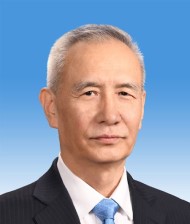 Download Profile as PDF
Download Profile as PDF
Liu He 刘鹤
- Born 1952
- Vice Premier of the State Council (2018–present)
- Member of the Politburo (2017–present)
- Director of the Office of the Central Financial and Economic Affairs Commission of the CCP Central Committee (2013–present)
- Head of the Financial Stability and Development Committee of the State Council (2018–present)
- Head of the Air Traffic Control Committee of the State Council and the Central Military Commission (2018–present)
- Head of the Work Safety Committee of the State Council (2018–present)
- Head of the Leading Group for Building an Advanced Manufacturing Industry (2018–present)
- Head of the Leading Group for the Promotion of Small and Medium-sized Enterprises of the State Council (2018–present)
- Head of the Leading Group for Technological System Reform and Innovation System Construction (2018–present)
- Head of the Leading Group of the State Council on State-owned Enterprise Reform (2018–present)
- Deputy Head of the Leading Group for Science and Technology (2018–present)
- Full member of the Central Committee of the CCP (2012–present)
Personal and Professional Background
Liu He was born on January 25, 1952, in Beijing. His ancestral home is Changli County, Hebei Province. Liu joined the Chinese Communist Party (CCP) in December 1976. He received a bachelor’s degree in economics (1979–83) and a master’s degree in management (1983–86), both from the Department of Industrial Economics at Renmin University in Beijing. He was a visiting scholar at the School of Business Administration at Seton Hall University (1992–93) and received an MPA from the Kennedy School of Government at Harvard University (1994–95), where he was a Mason Research Fellow. Liu was a founder and convener of the Chinese Economists 50 Forum.1 He serves as a professor of economics at Renmin University, Peking University, Tsinghua University, and the Beijing University of Aeronautics and Astronautics.
Liu began his career as a “sent-down youth” in an agricultural commune in Jilin Province (1969–70).2 He also served as a soldier in the 38th Group Army of the People’s Liberation Army (PLA) (1970–73). After demobilization from the military, Liu worked as a manual laborer and then as an official in the Beijing Radio Factory (1973–79). He later taught at Renmin University as an instructor (1983). After that, Liu worked as a researcher at the Development Research Center of the State Council (1986–87). He then served as deputy director of the Research Office and then deputy director of the Industrial Policy and Long-term Planning Department in the State Planning Commission (1987–98). Liu was subsequently promoted to executive deputy director of the State Information Center and concurrently chairman of the China Economic Information Company (1998–2001). He then served as deputy director of the State Council Information Office, where he was in charge of e-commerce and international cooperation (2001–03).
Liu served as deputy director of the Central Leading Group for Financial and Economic Work, where he was responsible for overseeing macro-economic policy planning and drafting speeches for CCP General Secretary Hu Jintao to deliver at annual CCP national conferences on economic affairs (2003–11). Liu then served as party secretary and deputy director of the Development Research Center of the State Council (2011–13). He served as vice minister and deputy party secretary of the National Development and Reform Commission (NDRC) (2013–18). He was first elected as a full member of the Central Committee at the 18th Party Congress in 2012.
Family and Patron-Client Ties
Liu He’s father, Liu Zhiyan, was a veteran Communist leader who joined the CCP in 1936 and participated in the student-led December 9th Movement in Beijing. After the founding of the PRC, Liu Zhiyan served consecutively as an official in the Central Organization Department of the CCP Central Committee, as a member of the Secretariat of the Kunming Municipal Party Committee, as a member of the Standing Committee of the CCP Yunnan Provincial Committee, and as secretary of the Secretariat and chief of staff of the CCP Southwestern Bureau. Liu Zhiyan was persecuted during the Cultural Revolution, and he committed suicide in 1967, at the age of 49, by jumping from the Jinjiang Hotel in Chengdu City, Sichuan Province. Liu He was Liu Zhiyan’s only child from his first marriage, which ended in divorce. Liu Zhiyan’s second marriage resulted in one son and one daughter. The daughter, Liu He’s half-sister, married Gong Zheng, the current mayor of Shanghai. Liu He is married, and he and his wife have a son.
Liu He is one of Xi Jinping’s most trusted confidants.3 Their friendship stems from their childhoods in Beijing. Some foreign and Chinese media outlets have mistakenly reported that Xi Jinping and Liu He attended the same middle school.4 In fact, Xi attended the Bayi School and Beijing No. 25 School, while Liu went to Beijing No. 101 School in the same district. It is likely that their friendship developed while they grew up together in the same neighborhood.
As an accomplished financial expert as well as an effective communicator in both Chinese and English, Liu He has proven to be a great asset to Xi. Liu He has also been recognized for his humble demeanor. He has responded to praise of his work by stating that it is inappropriate to emphasize any one individual’s contributions to China’s economic policy. Unsurprisingly, when Xi Jinping became general secretary of the party, he promoted Liu He to vice minister of the NDRC and office director of the Central Leading Group for Financial and Economic Work, in which capacity he serves as Xi’s chief economic strategist.
Policy Preferences and Political Prospects
The author of five books and over 200 articles, Liu He focuses his research on five broad areas: the relationship between economic development and changes in industrial structure in China; macroeconomic theory; corporate governance and property rights; the new economy and the information industry; and the reform of Chinese state-owned enterprises (SOEs). Liu He has contributed significantly to the new economic paradigms and concepts outlined in Xi Jinping’s first term, such as the “economic new normal” and “supply-side reform.” His economic outlook is remarkably liberal. Liu served as a chief drafter of the communiqué at the Third Plenum of the 18th National Party Congress, which claimed to be “version 2.0” of China’s market development.5 It is still unclear why that blueprint failed to be implemented in the following years, although it was probably a result of resistance from SOEs and the changing international economic environment.
As vice premier in charge of China’s finance and economic structural reforms, Liu plays a key role in implementing Xi’s economic agenda, including that of innovation-driven growth and environment-sensitive urbanization, poverty alleviation, and prevention of financial crisis as well as trade negotiations with the United States. Given his age, he may step down from the Party leadership at the 20th Party Congress and serve in a more ceremonial governmental position such as vice president of the PRC. But Liu He may still be a candidate to serve as the next premier if Xi and the party leadership intends to place more emphasis on improving China’s relations with other major powers such as the EU and enhance international confidence in Chinese market reform and economic growth in the next five years.
Compiled by Cheng Li and the staff of the John L. Thornton China Center at BrookingsNotes
- The Forum consists of the country’s most influential economists and financial technocrats, including the current governor of the People’s Bank, Zhou Xiaochuan; executive vice-governor Yi Gang; and former minister of finance, Lou Jiwei. The mission of the Forum is to provide policy recommendations to the government on major economic issues. For more information, see http://www.50forum.org.cn/home/article/jianjie.html.
- “Sent-down youth” (插队知青) refers to young, educated urbanites who left their home cities to serve as manual laborers in the countryside during the Cultural Revolution.
- In the fall of 2013, Xi introduced Liu He to the U.S. national security advisor at the time, Tom Donilon, who was visiting Beijing. Xi said, “This is Liu He. He is very important to me.” Quoted from Bob Davis, “Meeting Liu He, Xi Jinping’s Choice to Fix a Faltering Chinese Economy,” Wall Street Journal, October 6, 2013.
- For example, Bob Davis and Lingling Wei reported that “both [Xi Jinping and Liu He] were schoolmates in Beijing’s No. 101 Middle School in the 1960s.” Ibid. Also see Wu Ming, “China’s new leader: Biography of Xi Jinping” [中国新领袖:习近平传], enlarged new edition (Hong Kong: 文化艺术出版社, 2010), p. 572.
- Cheng Li, Chinese Politics in the Xi Jinping Era: Reassessing Collective Leadership (Washington, DC: The Brookings Institution Press, 2016), p. 324.
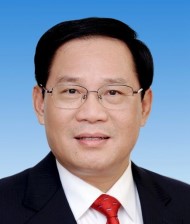 Download Profile as PDF
Download Profile as PDF
Li Qiang 李强
- Born 1959
- Party Secretary of Shanghai (2017–present)
- Member of the Politburo (2017–present)
- Full member of the Central Committee of the CCP (2017–present)
Personal and Professional Background
Li Qiang was born in July 1959 in Rui’an County, Zhejiang Province. Li joined the Chinese Communist Party (CCP) in 1983. He received his undergraduate education in agricultural mechanization at the Zhejiang Institute of Agriculture’s Ningbo campus in Ningbo City, Zhejiang (1978–82). He pursued further studies through a graduate program in management engineering at Zhejiang University in Hangzhou, Zhejiang (via part-time studies, 1995–97); a year-long full-time training program for young and middle-aged cadres at the Central Party School (CPS) in Beijing (2001–02); and a part-time graduate program in world economics at the CPS (2001–04). He also received an MBA from Hong Kong Polytechnic University in Hong Kong (via part-time studies, 2003–05).
Li began his career working at an electromechanical irrigation and drainage station in Mayu District, Rui’an County (1976–77) and then at the No. 3 Tools Factory in Rui’an County (1977–78). He served as a clerk and an official of the Chinese Communist Youth League (CCYL) Committee of Xincheng District, Rui’an County (1982–83), and as secretary of the CCYL Committee of Rui’an County (1983–84). He also served as deputy division head and division head of the Rural Relief Division of the Zhejiang Provincial Civil Affairs Department (1984–91), then as director of the Personnel Division of the Zhejiang Provincial Civil Affairs Department (1991–92), and finally as deputy director of the Zhejiang Provincial Civil Affairs Department (1992–96). Following those roles, he served as a member of the Standing Committee of Jinhua City, Zhejiang, and as party secretary of Yongkang City, Zhejiang (1996–98). Next, he served as deputy director of the General Office of the Zhejiang provincial government (1998–2000), and then as director and party secretary of the Bureau of Administration for Industry and Commerce in the Zhejiang provincial government (2000–02). After that, Li was appointed party secretary of Wenzhou City, Zhejiang (2002–04). He then became secretary-general (chief of staff) of the Zhejiang Provincial Party Committee (2004–12). Finally, he served as secretary of the Zhejiang Provincial Commission of Politics and Law (2011–12), as deputy party secretary of Zhejiang (2011–16), and as governor of Zhejiang (2013–16).
Li was transferred to the neighboring province of Jiangsu, where he served as party secretary (2016–17). He was first elected to the Central Committee as an alternate member at the 18th Party Congress in 2012.
Family and Patron-Client Ties
Li Qiang is one of Xi Jinping’s most trusted protégés. From 2004 to 2007, he worked directly under Xi as his chief of staff in the Zhejiang Provincial Party Committee. Li’s appointment as party secretary of Jiangsu — an important province that had been beset by scandals involving top provincial leaders — and his appointment as party secretary of Shanghai reflect Xi’s intention to help bolster Li’s leadership credentials. Li Qiang’s wife worked in the transportation bureau of the Zhejiang provincial government before retirement. The couple has one daughter, who has studied in Australia.
Policy Preferences and Political Prospects
Li Qiang not only has Xi’s firm support but also possesses substantial leadership experience. He has run the three most important provincial economies in the lower Yangtze River region: Zhejiang, Jiangsu, and Shanghai. Li is exceptionally well positioned to promote greater economic integration inthe lower Yangtze River delta region. He has been strongly supportive of private-sector and service-sector development. He is particularly interested in innovation related to information technology and artificial intelligence. For many years, Li has called for greater efforts to promote the “real economy” or “tangible economy” rather than the “virtual economy.”1 Under the leadership of Li Qiang, one of Shanghai’s “magical” endeavors took place amid rising tensions in the U.S.-China trade war during the summer of 2018, when Tesla established its largest overseas plant in the city. Tesla, a Silicon Valley automaker, built a factory in Shanghai, where it would produce 500,000 electric cars annually. It took only ten months for this joint venture to advance from construction to full operation.2 In spring 2022, Shanghai was locked down for two months under the country’s zero-Covid policy. The draconian measures and chaotic management implemented by Shanghai municipal authorities during this time infuriated Shanghai residents, not only reflecting serious flaws in governance, but also stymying Li Qiang’s chance to become the next premier and making his ascension to the new Politburo Standing Committee (PSC) uncertain.3 However, the central government has still praised Li Qiang for his leadership role in firmly implementing Beijing’s policy to protect public health in the city and beyond. Because of his relatively young age, Li Qiang is often considered a member of the sixth-generation cohort (born in the 1960s), alongside rising stars currently in the Politburo such as Ding Xuexiang, Hu Chunhua, and Chen Min’er. Also, because of Li’s closeness to Xi, Li remains a candidate for the PSC that will be formed this October. If he obtains PSC membership, Li will likely serve as executive vice premier of the State Council. If he does not, Li may retain his membership in the next Politburo.
Compiled by Cheng Li and the staff of the John L. Thornton China Center at BrookingsNotes
- Southern Metropolis Daily [南方都市报], January 26, 2017, http://news.southcn.com/china/m/content/2017-01/26/content_164397344.htm?from=singlemessage&isappinstalled=0.
- Cheng Li, Middle Class Shanghai: Reshaping U.S.-China Engagement (Washington, DC: The Brookings Institution Press, 2021). p. 115.
- Yew Lun Tian, “Analysis: Shanghai COVID crisis puts political spotlight on key Xi ally”, Reuters, May 8, 2022, https://www.reuters.com/world/china/shanghai-covid-crisis-puts-political-spotlight-key-xi-ally-2022-05-08/
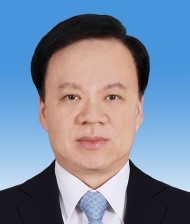 Download Profile as PDF
Download Profile as PDF
Chen Min’er 陈敏尔
- Born 1960
- Chongqing Party Secretary (2017–present)
- Member of the Politburo (2017–present)
- Full member of the Central Committee of the CCP (2012–present)
Personal and Professional Background
Chen Min’er was born on September 29, 1960, in Zhuji City, Zhejiang Province. Chen joined the Chinese Communist Party (CCP) in 1982. He received a three-year college education in Chinese language and literature at Shaoxing Normal College in Shaoxing City, Zhejiang Province (1978–81). He then attended a course for instructors of political theory at the Zhejiang Provincial Party School in Hangzhou (1982–83); participated in a one-year, full-time training program for young and middle-aged cadres at the Central Party School (CPS) (1995–96) in Beijing; and received a master’s degree in law from the CPS (via part-time studies, 1995–98).
Chen worked as a propaganda clerk, first at Shaoxing Normal College (1981–82) and then in the propaganda department of the Shaoxing Municipal Party Committee (1984–87). He served as head of the propaganda department and, concurrently, as a member of the Standing Committee of the Shaoxing County Party Committee (1987–89). He was promoted to be deputy head of the propaganda department of the Shaoxing Municipal Party Committee (1989–90). He then served as deputy party secretary of Shaoxing County (1990–94) and, concurrently, as head of Shaoxing County (1991–94). After that, he served as party secretary and head of Shaoxing County (1994–95). He was then party secretary of Shaoxing County and, concurrently, a member of the Standing Committee of the Shaoxing Municipal Party Committee (1996–97). Subsequently, Chen was made a vice mayor and member of the Standing Committee of Ningbo City, Zhejiang Province (1997–98); executive vice mayor of Ningbo City (1998–99); and then deputy party secretary of Ningbo City (1999). Following that, he served as president and party secretary of the newspaper Zhejiang Daily (1999–2001). He was made director of the propaganda department of the Zhejiang Provincial Party Committee (2001–07) and, concurrently, a member of the Standing Committee of the Zhejiang Provincial Party Committee (2002–07). He then became vice-governor of Zhejiang Province (2007–12).
In January 2012, Chen was transferred to Guizhou, where he served as deputy party secretary (2012–15) and, concurrently, governor (2013–15). He was then promoted to be party secretary of Guizhou (2015–17). He was first elected to the Central Committee as an alternate member at the 17th Party Congress in 2007.
Family and Patron-Client Ties
Chen Min’er is one of Xi Jinping’s most trusted protégés. When Xi was party boss of Zhejiang Province (2002–07), Chen served as director of the propaganda department and as a standing committee member of the Zhejiang Provincial Party Committee. During those five years, Chen was widely believed to have substantially assisted Xi in preparing weekly columns for the provincial party newspaper, Zhejiang Daily. In 2015, Xi took the noteworthy step of promoting Chen to provincial party secretary of Guizhou, making Chen one of only three provincial party secretaries born in the 1960s (the other two— Hu Chunhua, then the party secretary of Guangdong, and Sun Zhengcai, then the party secretary of Chongqing — were both Politburo members).1 Again with Xi’s backing, Chen was appointed party secretary of Chongqing in 2017, replacing Sun Zhengcai, who was investigated for corruption and other transgressions. These two appointments have positioned Chen well for further political advancement.
The identity of Chen Min’er’s wife is unknown. The couple has a daughter, who was previously married to the son of Si Xinliang, the former head of both the propaganda department and the organization department in the Zhejiang Provincial Party Committee. Si Xinliang was purged on corruption charges in 2015.
Policy Preferences and Political Prospects
In his capacity as a provincial leader over the past two decades, Chen has focused his efforts on advancing certain policy initiatives. As a leader in Zhejiang, Chen Min’er was seen as strongly supportive of private sector development. In Guizhou, Chen was known for his dedication to poverty alleviation, commitment to environmental protection, and promotion of big data, e-commerce, and innovation. During Chen’s tenure in Guizhou, the province became a center of big data in the country.2 Now in Chongqing, Chen has emphasized the need to create a new “political ecology,” in contrast to the “poor governance” practiced under the leadership of both Bo Xilai and Sun Zhengcai. He has also called for the promotion of small townships with distinct characteristics in terms of subculture, commerce, and geographic landscape.
As one of the few sixth-generation leaders in the current Politburo and, more importantly, as a confidant of Xi Jinping, Chen is a leading contender for the next Politburo Standing Committee (PSC). If Chen obtains membership on the PSC, he will most likely serve as executive secretary of the Secretariat of the CCP Central Committee and be responsible for propaganda and party building.
Compiled by Cheng Li and the staff of the John L. Thornton China Center at BrookingsNotes
- Cheng Li, Chinese Politics in the Xi Jinping Era: Reassessing Collective Leadership (Washington, DC: Brookings Institution Press, 2016), p. 343.
- Jiang Xun and Yuan Weijing, “Political Rising Star Chen Min’er is a Confidant of Xi Jinping” [政坛新星陈敏尔是习近平亲信], Mirror Network, August 17, 2017, http://news.mingjingnews.com/2017/08/blog-post_502.html.
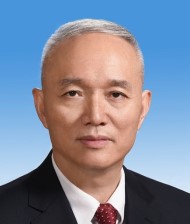 Download Profile as PDF
Download Profile as PDF
Cai Qi 蔡奇
- Born 1955
- Party Secretary of Beijing (2017–present)
- Member of the Politburo (2017–present)
- Full member of the Central Committee of the CCP (2017–present)
Personal and Professional Background
Cai Qi was born on December 5, 1955, in Youxi County, Fujian Province. He joined the Chinese Communist Party (CCP) in 1975. He received an undergraduate education in political education (1975–78), a post-graduate degree in economic law (via part-time studies, 1994–97), and a doctorate in political economy (via part-time studies, 1999–2001) from Fujian Normal University in Fuzhou City, Fujian Province. He also attended a four-month training program for department/prefecture-level cadres at the Central Party School in Beijing (1996).
Cai began his career as a “sent-down youth” in the Xiyang Commune in Yong’an County, Fujian Province (1973–75).1 After completing his undergraduate studies at Fujian Normal University, Cai stayed on as an official in the university’s party committee office (1978–83). In 1983, he was transferred to the Fujian Provincial Party Committee, where he served as a clerk (1983–85), division deputy head (1985–87), and personal assistant (mishu) with the rank of division head in the General Work Department (1987–91). Cai then became deputy director of the Office of Political Reform (1991–92), deputy director of the Party Building Department (1992–93), and deputy director of the General Office (1993–96). During this latter post, Cai was primarily a personal secretary to Chen Guangyi, who was party secretary of Fujian Province at that time. Cai also worked as deputy party secretary of Sanming City, Fujian Province (1994–99) and, concurrently, mayor of Sanming City (1997–99).
In 1999, Cai moved to Zhejiang Province. Cai first served as deputy party secretary and mayor (1999–2002) and then party secretary (2002–04) of Quzhou City, Zhejiang. He next served as party secretary of Taizhou City, Zhejiang Province (2004–07). After that, he concurrently served as deputy party secretary and deputy mayor (2007) and then concurrently as party secretary and mayor of Hangzhou City, Zhejiang Province (2007–10). He then became director of the Organization Department of the Zhejiang Provincial Party Committee (2010–13) and executive vice governor of Zhejiang (2013–14). In March 2014, Cai was transferred to Beijing, where he served as deputy director (2014–15) and executive deputy director (2015–16) of the newly established General Office of the National Security Commission. Most recently, Cai served as mayor and deputy party secretary of Beijing (2016–17). In May 2017, he was appointed party secretary of Beijing. Cai served as deputy director of the Beijing 24th Winter Olympic Games Central Leading Group and chairman of the Beijing 24th Winter Olympic Games Organizing Committee (2017–2022).
Family and Patron-Client Ties
Cai is one of Xi Jinping’s most trusted confidants. Although his early experience as mishu to Fujian Party Secretary Chen Guangyi aided his advancement to municipal-level leadership, it was Xi Jinping who appointed Cai to some of the country’s most important leadership positions. These positions include executive deputy director of the General Office of the National Security Committee, party secretary of Beijing, and member of the Politburo.
Cai was working in the General Office of the Fujian Provincial Party Committee when Xi arrived in Fujian in 1985. The two would work together in the municipal and provincial leadership in Fujian over the following 15 years. Cai worked directly under Xi in the mid-1990s, when Cai served as deputy director of the General Office of the Fujian Provincial Party Committee and Xi served as deputy party secretary. Cai Qi also worked with Xi in Zhejiang Province from 2002 to 2007, serving as party secretary and mayor of several counties and cities, including Hangzhou, while Xi was Zhejiang party secretary.2
Cai Qi’s wife was a bureau-level official in Zhejiang before her recent retirement. The couple has a son who previously served as a subdistrict level official in Hangzhou and a staff member of the National Development and Reform Commission (NDRC).
Policy Preferences and Political Prospects
It is very unusual for a party secretary of Beijing to have never previously served on the CCP Central Committee. The fact that Cai was promoted four times over the past four years suggests his importance to Xi Jinping. Cai has played a key role in the establishment of Xiong’an New District, a satellite area near Beijing and the third largest special economic zone in China (the other two being Shenzhen and Pudong, Shanghai). However, the abrupt and large-scale police campaign to remove the so-called “low-end population” from Beijing in November 2017 damaged Cai’s reputation.
Cai is also known for energetically supporting “absolute loyalty” to Xi Jinping and endorsing Xi’s status as “core leader.”3 On the policy front, Cai’s areas of focus over the past five years have included green development in the capital (environmental protection, in particular) and national security issues (such as cyber security).4 He received much praise for his leadership role in successfully hosting the Beijing Winter Olympics. He is a candidate for the Politburo Standing Committee this October. If he obtains a seat on this supreme decision-making body, Cai will likely serve in one of these three positions: chairman of the Chinese People’s Political Consultative Conference (CPPCC), executive secretary of the Secretariat of the CCP Central Committee, or secretary of the Central Commission for Discipline Inspection (CCDI).
Compiled by Cheng Li and the staff of the John L. Thornton China Center at BrookingsNotes
- “Sent-down youth” (插队知青) refers to young, educated urbanites who left their home cities to serve as manual laborers in the countryside during the Cultural Revolution.
- Cheng Li, Chinese Politics in the Xi Jinping Era: Reassessing Collective Leadership (Washington, DC: The Brookings Institution Press, 2016), pp. 341–42.
- “19th Party Congress Battle to Defend Its Politics, Cai Qi Names Three Red Lines,” [十九大政治保卫战 蔡奇三个决不划红线] Duowei News, August 29, 2017, (http://news.dwnews.com/china/news/2017-08-29/60009666.html).
- Victor Shih, “Beijing’s Game of Thrones: Signaling Loyalty Before the Party Congress,” China Focus, September 11, 2017, (http://chinafocus.us/2017/09/11/beijings-game-of-thrones-signaling-loyalty-before-the-party-congress).
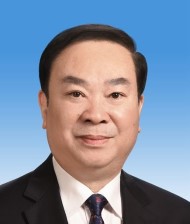 Download Profile as PDF
Download Profile as PDF
Huang Kunming 黄坤明
- Born 1956
- Member of the Politburo (2017–present)
- Director of the Central Propaganda Department of the CCP Central Committee (2017–present)
- Deputy Head of the Central Spiritual Civilization Steering Committee of the CCP Central Committee (2017–present)
- Director of the Office of the Central Spiritual Civilization Steering Committee of the CCP Central Committee (2014–present)
- Member of the Secretariat of the Central Committee of the CCP (2017–present)
- Full member of the Central Committee of the CCP (2017–present)
Personal and Professional Background
Huang Kunming was born on November 15, 1956, in Shanghang County, Fujian Province. He joined the Chinese Communist Party (CCP) in 1976. He received a bachelor’s degree in politics from the Department of Political Education at Fujian Normal University in Fuzhou City, Fujian Province (1978–82); a master’s degree in economic management from the Central Party School (CPS) in Beijing (via part-time studies, 1985–88); and a doctoral degree in management from the Tsinghua University School of Public Administration in Beijing (via part-time studies, 2005–08).
Huang began his career as a PLA solider (1974–77). He was also a “sent-down youth” at the Tongxian Commune in Shanghang County, Fujian Province (1977–78).1 After graduating from Fujian Normal University, he worked as a clerk in the Young Cadre Division of the Organization Department of the Longyan Prefecture Party Committee of Fujian Province (1982–88). He served as deputy director of the General Office (1988–90), and then as director of the General Office and deputy secretary-general of Longyan Prefecture, Fujian Province (1991–93). After that, he served as party secretary of Yongding County, Fujian Province (1993–98) and deputy party secretary and mayor of Longyan City (1998–99).
In 1999, Huang was transferred to Zhejiang, where he served as deputy party secretary (1999–2003) and mayor (2000–03) of Huzhou City and then as party secretary of Jiaxing City (2003–07). He then became director of the Propaganda Department of the Zhejiang Provincial Party Committee (2007–10) and party secretary of Hangzhou (2010–13). After that, Huang was appointed as deputy head of the Central Propaganda Department of the CCP Central Committee (2013–14). He was first elected to the Central Committee as an alternate member at the 18th Party Congress in 2012.
Family and Patron-Client Ties
Huang Kunming is a protégé of Xi Jinping. He is believed to have substantially assisted Xi in preparing his “New Thought in Zhejiang” (zhijiang xinyu) newspaper column, which was published in Zhejiang Daily from 2003 to 2007, when Xi was Zhejiang party secretary.2 Xi and Huang frequently exchanged ideas and views during those years. In 2007, Xi appointed Huang as director of the Propaganda Department of the Zhejiang Provincial Party Committee.3 Soon after Xi became general secretary of the party, Huang was promoted to be deputy director of the Central Propaganda Department of the CCP Central Committee. Huang’s wife, Qiu Ping, served as director of the Tobacco Monopoly Bureau of the Zhejiang municipal government before her retirement several years ago. The couple has one daughter.
Policy Preferences and Political Prospects
Huang has played an important role in promoting Xi’s thoughts on governance and Xi’s first-term achievements. In addition to holding Politburo membership, Huang was promoted to be director of the Central Propaganda Department of the CCP Central Committee during Xi’s second term. Because of Huang Kunming’s long experience working with Xi in Fujian and Zhejiang and his work to promote Xi Jinping thought over the past decade, Huang may succeed Wang Huning as executive secretary of the Secretariat of the CCP Central Committee at the 20th Party Congress and thus obtain a seat on the new Politburo Standing Committee. Given that Huang does not have an advantage in terms his age, he may step down from the Politburo in October and serve in a more ceremonial governmental position.
Compiled by Cheng Li and the staff of the John L. Thornton China Center at BrookingsNotes
- “Sent-down youth” (插队知青) refers to young, educated urbanites who left their home cities to serve as manual laborers in the countryside during the Cultural Revolution.
- The articles that appeared in the column were later compiled into a book; see Xi Jinping, New Thoughts from Zhejiang [Zhejiang xinyu] (Hangzhou: Zhejiang renmin chubanshe, 2007); also see Cheng Li, Chinese Politics in the Xi Jinping Era: Reassessing Collective Leadership (Washington, DC: Brookings Institution Press, 2016), pp. 241–42.
- Ye Maozhi and Liu Ziwei, “Xi Jinping promoted confidants, quietly but aggressively” [Xi Jinping qiaoqiao daju tiba xinfu], Mirror Newsnet, May 10, 2014, http://www.wenxuecity.com/news/2014/05/10/3257474print.html.
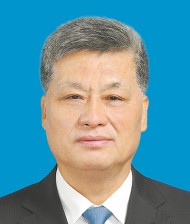 Download Profile as PDF
Download Profile as PDF
Ma Xingrui 马兴瑞
- Born 1959
- Party Secretary of the Xinjiang Uygur Autonomous Region Committee of the China Communist Party (CCP) (2021–present)
- First Political Committee Member of the Xinjiang Production and Construction Corps (XPCC) (2021–present)
- First Secretary of the Committee of the XPCC (2021–present)
- Full member of the Central Committee of the CCP (2017–present)
Personal and Professional Background
Ma was born on October 6, 1959, in Shuangyashan County, Heilongjiang Province. His ancestral home is Yuncheng County, Shandong Province. He joined the Chinese Communist Party (CCP) in 1988. He received a bachelor’s degree in mechanical and electrical engineering from Liaoning Technical University (previously called Fuxin Mining Institute) (1978–82) and completed his master’s degree in mechanics at Tianjin University (1982–85). Ma then pursued a doctoral degree in mechanics at the Harbin Institute of Technology (1985–88) and worked there after graduation as an instructor, associate professor, and professor (1988–93). He was appointed chairman of the Aerospace Engineering and Mechanics Department (1993–96) and later became vice dean of the Aerospace College (1995–96) and vice president of the Harbin Institute of Technology (1996).
Ma was named vice president of the Chinese Academy of Space Technology in 1996 and led the Shijian 5 satellite project as chief engineer (1996–99). In 1999, he was appointed as the deputy general manager of the China Aerospace Science and Technology Corporation (1999–2007) and was promoted to general manager in 2007 (2007–13). That same year, Ma was elected as an academician in the International Academy of Astronautics. In 2013, Ma took several posts concurrently as vice minister of Industry and Information Technology, director of the China National Space Administration, director of the China Atomic Energy Authority, and director of the State Administration for Science, Technology, and Industry for National Defense. He was also a member of the Special Committee of the Central Military Commission and a member of the Leading Group for Revitalizing the Industrial Bases in Northeast China.
Beginning in 2013, Ma worked as the deputy party secretary of Guangdong for eight years (2013–21). He was also appointed secretary of the Guangdong Political and Legal Affairs Commission (2013–15), director of the Social Work Commission of Guangdong Provincial Committee (2013–15), and party secretary of Shenzhen (2015–16). He became Vice Governor of Guangdong in 2016 and was promoted to Governor in 2017. Ma was a member of Central Coordination Group for Hong Kong and Macau Affairs from 2017 to 2021. He was transferred to Xinjiang in 2021 and currently serves as party secretary of Xinjiang.
Family and Patron-Client Ties
Ma was born into a family of very humble means. His father and two brothers were miners in the Shuangyashan Mining Bureau. Ma has advanced his professional and political career largely through the aerospace industry in which he worked for 25 years. As a rocket scientist, Ma served as chief commander for several space missions, including the Chang’e 3 Mission, China’s first lunar surface exploration. The political ascendance of Ma and other rocket scientists, or “China’s cosmos club” (hangtianxi), also reflects Xi’s strategic emphasis on China’s space development. Xi Jinping has long advocated prioritizing China’s space program — the aerospace industry on both the military and civilian fronts — which he views as the best testimony to China’s national strength and status on the world stage.1
There are arguably other important reasons for Xi to promote leaders from the aerospace industry, which include 1) expanding channels for elite selection, 2) broadening and diversifying his political powerbase, 3) fostering a new generation of technocrats with a stronger inclination for indigenous innovation, 4) appointing “outsiders” to provincial/municipal leadership positions to undermine economic localism and locality-based political factions, 5) appointing former CEOs of China’s flagship companies to be provincial chiefs in order to enhance economic efficiency and the international competition of localities, 6) promoting the integrated development of military and civilian enterprises, and 7) strengthening national security by building a more modernized defense industry. Not surprisingly, Ma has often been seen as Xi’s key protege as he represents all of these trends.
Ma Xingrui’s wife, Rong Li, was his classmate in graduate school. The couple has a daughter who also holds a doctoral degree.
Policy Preferences and Political Prospects
In addition to his political leadership role, Ma Xingrui has a large number of part-time academic positions and titles, including serving as a member of the discipline review group of the Academic Degrees Committee of the State Council, executive director of the Chinese Society of Vibration Engineering, director of the Chinese Academy of Astronautics, guest director of the Chinese Society of Mechanics, head of the satellite technology professional group of the General Equipment Department of the Chinese People’s Liberation Army, deputy editor-in-chief of the Journal of Astronautics, and editorial board member of the Journal of Vibration Engineering and Applied Mathematics and Mechanics.
Ma’s broader professional background has been helpful to him as a top provincial leader. In Guangdong, he made concerted efforts to promote the construction of an international science and technology innovation center in the Greater Bay Area to respond to U.S.-China trade frictions and technological competition. During his tenure as governor, the province established three sets of 10 new provincial laboratories, contributing to the digital economy, 5G, 4K/8K ultra-high-definition video, new energy vehicles, and industrial robots.2 Soon after he arrived in Xinjiang as party chief, Ma focused on several concrete changes, including 1) restoring Saturday as a day off for workers in the province; 2) inviting entrepreneurs from other provinces to invest in Xinjiang; 3) removing the turnstiles that restrict the flow of people in residential areas; 4) reducing armed soldiers and police cruising in streets; and 4) promoting the sinicization of Islam in Xinjiang.3
It is perhaps still too early to evaluate Ma’s work in Xinjiang. But his appointment as party secretary in this important province has already secured him a membership in the 20th Politburo. Ma may even have a chance to attain a two-step promotion with a seat on the new Politburo Standing Committee.
Compiled by Cheng Li and the staff of the John L. Thornton China Center at BrookingsNotes
- Cheng Li, “The Rapid Rise of the “Cosmos Club” in the Xi Jinping Era.” China-U.S. Focus, July 15, 2022, https://www.chinausfocus.com/2022-CPC-congress/the-rapid-rise-of-the-cosmos-club-in-the-xi-jinping-era.
- “Interview with Ma Xingrui: Promoting Guangdong’s high-quality development to be at the forefront of the country.” [马兴瑞接受访谈:推动广东高质量发展走在全国前列], Southern Daily [南方日报] , March 13, 2019, http://zfsg.gd.gov.cn/xxfb/ywsd/content/post_2222415.html.
- https://www.163.com/dy/article/HDHPJ5UT0515GFNQ.html.
Author
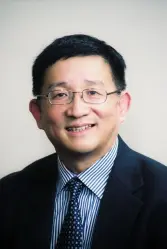
The Brookings Institution is committed to quality, independence, and impact.
We are supported by a diverse array of funders. In line with our values and policies, each Brookings publication represents the sole views of its author(s).
